Where do we go from here?
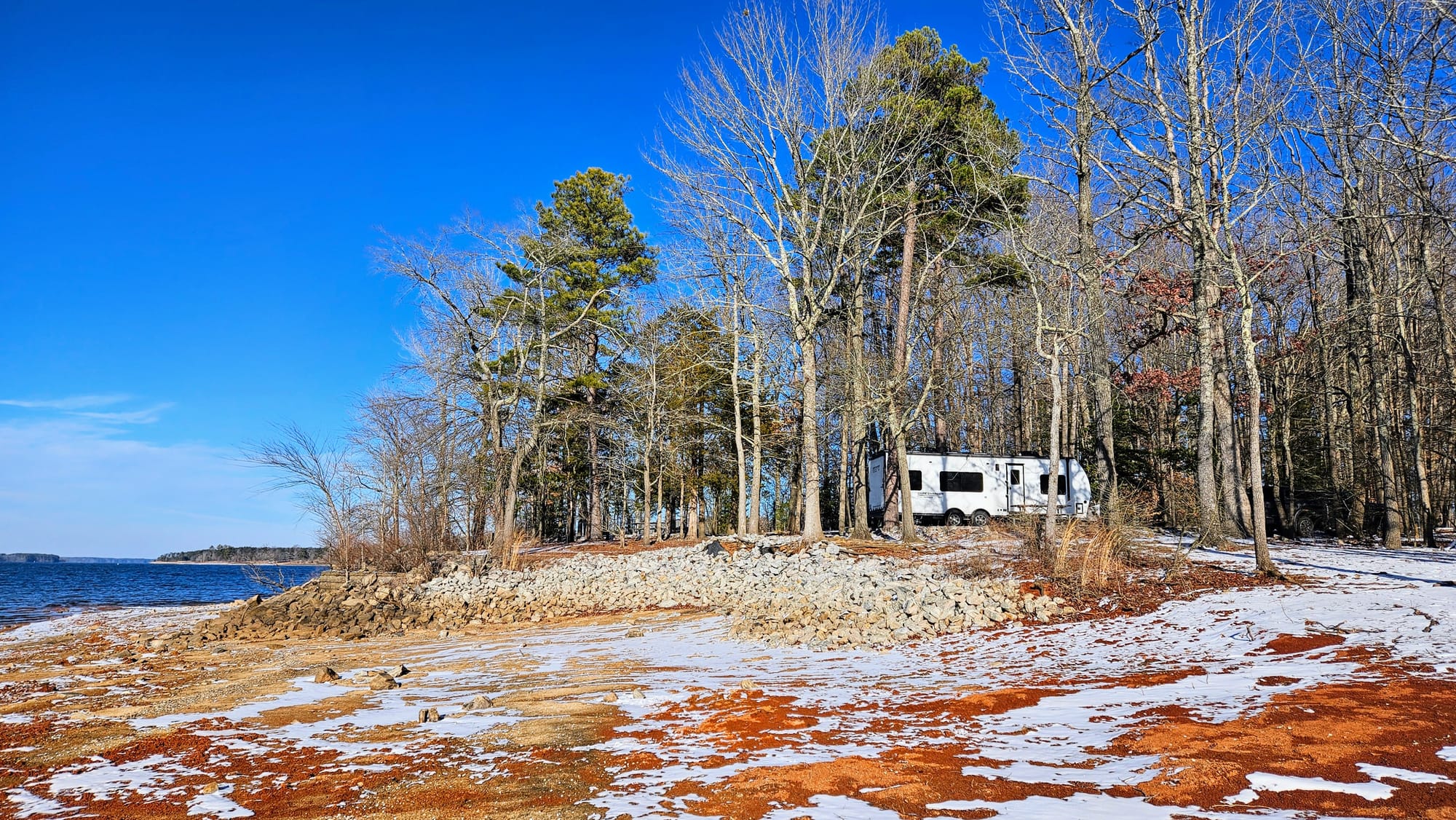
By January 21, most of the US was experiencing temperatures well below average. The Gulf Coast was heeding blizzard warnings. We hunkered down at our lakefront site on the northern border of North Carolina, assuring ourselves that we made the right decision by staying put until these weather patterns subsided. There was no way to avoid the cold front, but our location wasn't reaching temps anywhere near as cold as some other parts of the country. We managed to park ourselves somewhere that would get some cold, but not the worst cold, and would likely get some of the snowstorm, but not the worst of it.
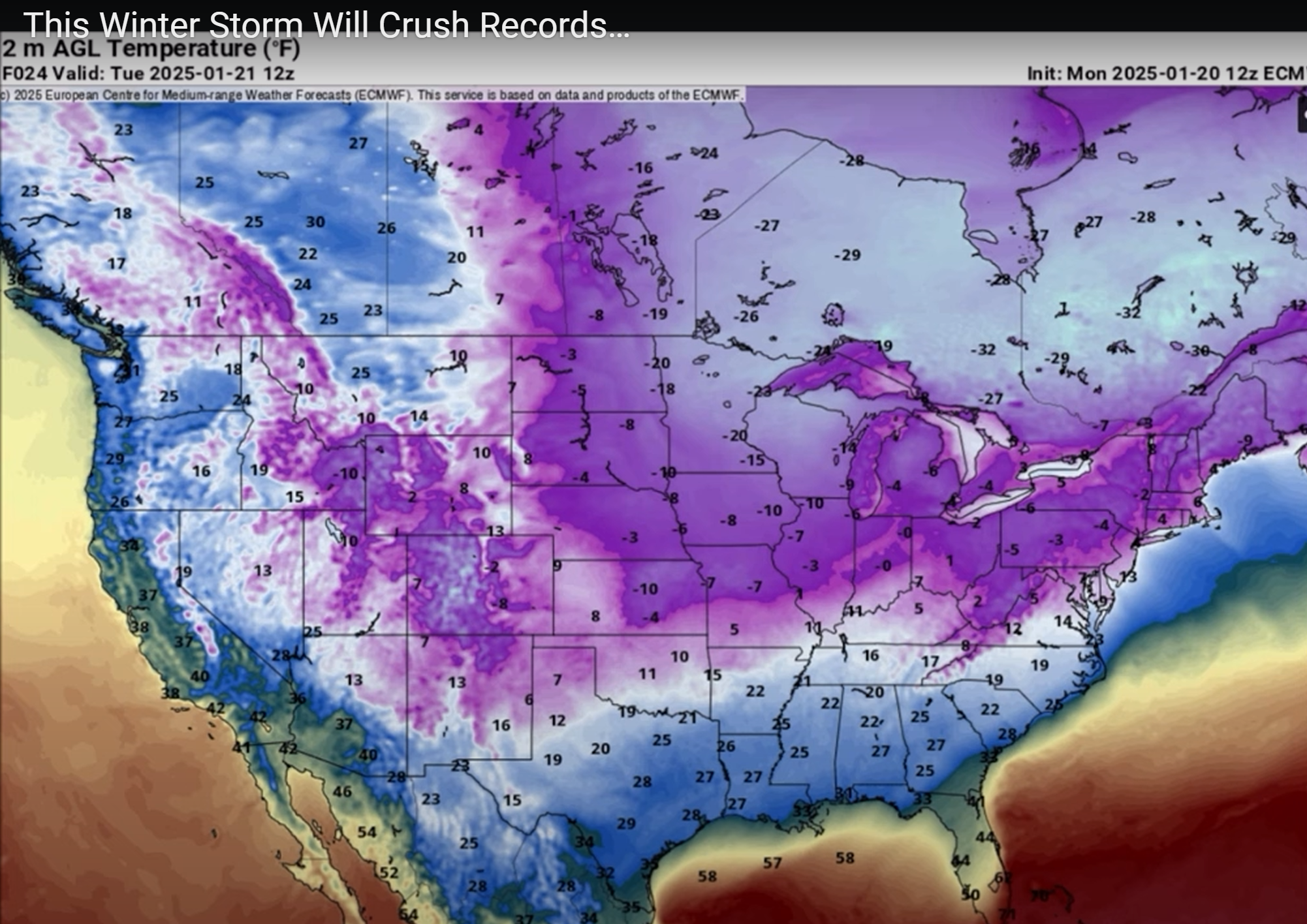
Even though our temperatures didn't drop below the low teens, we found ourselves in a dance with our water. The lines would freeze, and we'd set our propane heater under them. Then they'd thaw and we'd have running water again, until the next time they froze, at which point we'd turn the heater on again. Round and round we went.
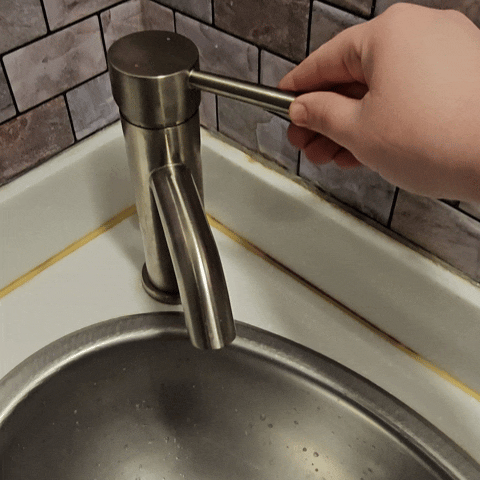
We were stuck being reactive instead of proactive, but there wasn't much more we could do. From here, it was just a waiting game until the cold front passed.
Meanwhile, the storm predictions for our area were giving us whiplash. First, the radar was showing no snow but possible ice. Then, nothing. Then, ice again. Then, nothing. And by Tuesday morning, a chance of snow later that night. The storm on the Gulf Coast had grown in size, sending moisture to a larger radius and increasing our chances of precipitation.
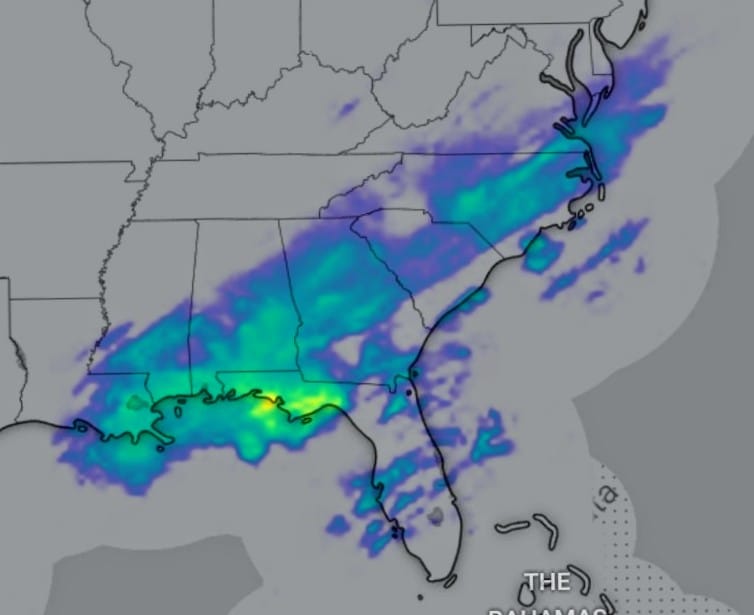
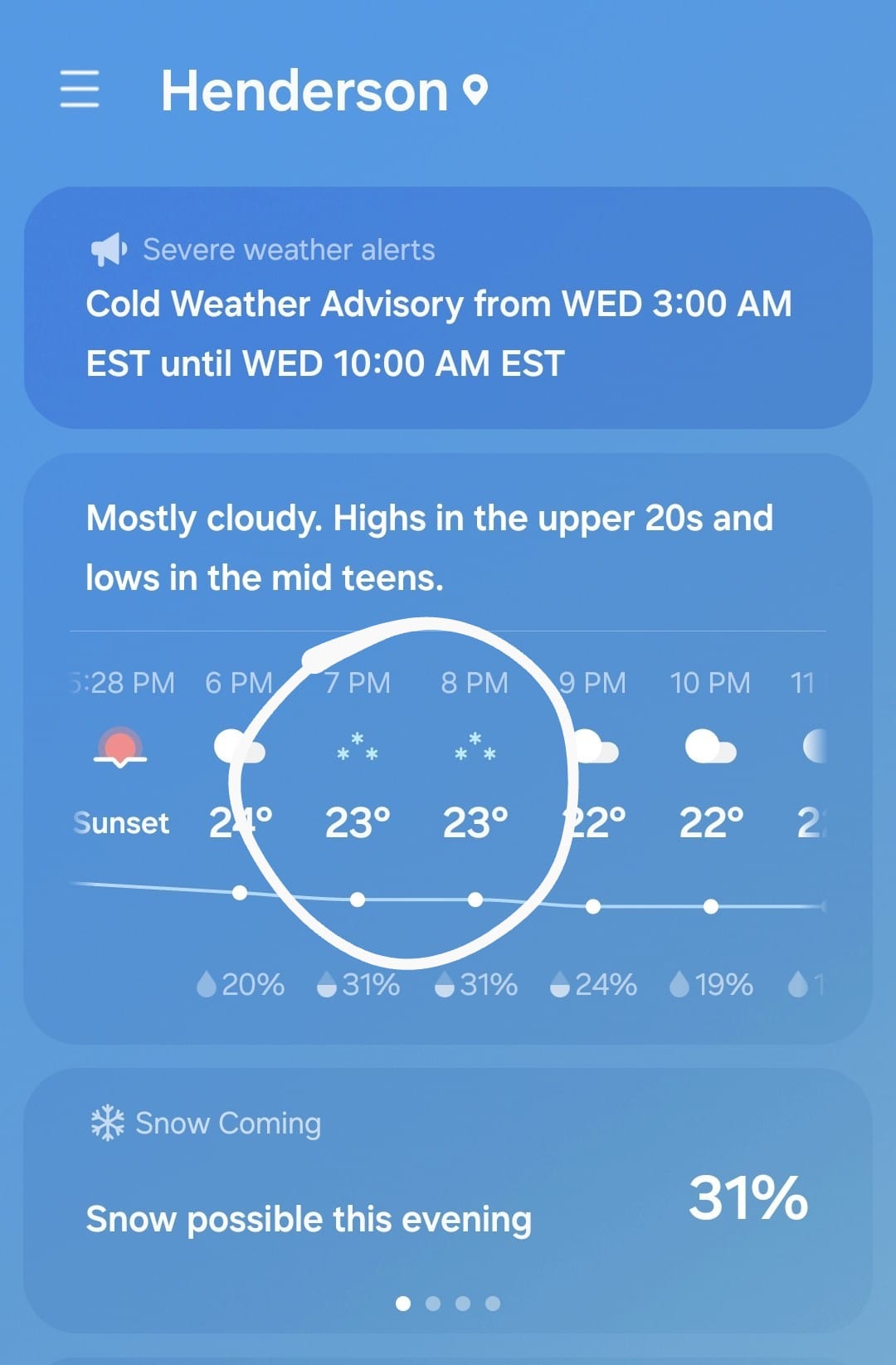
We watched the weather closely throughout the day, but couldn't keep up. The whiplash continued, with our apps telling us snow was coming, and then literally 15 minutes later, telling us our night would be clear. All we could do was sit and wait, once again resting on our decision to stay put until the storm passed.
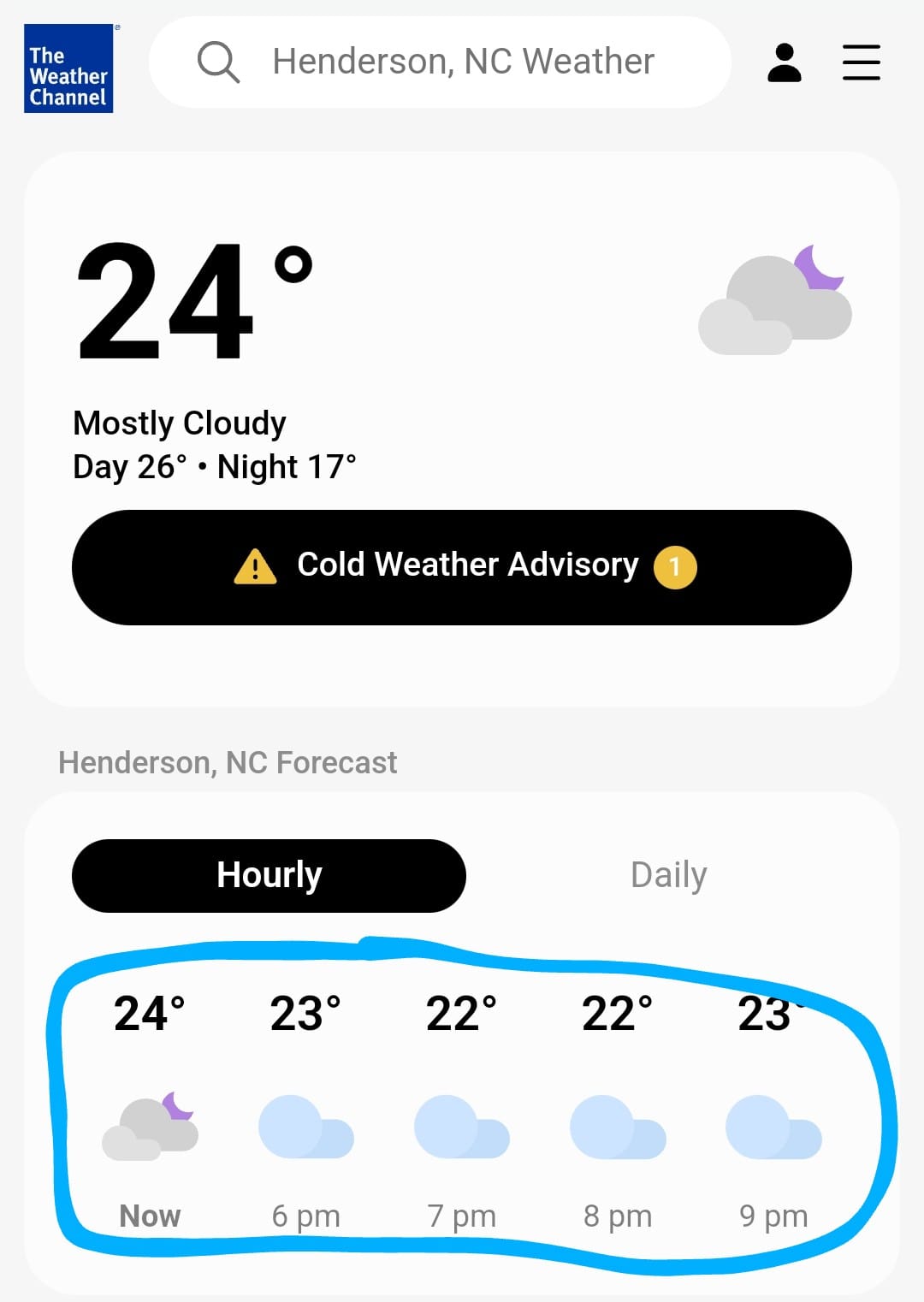
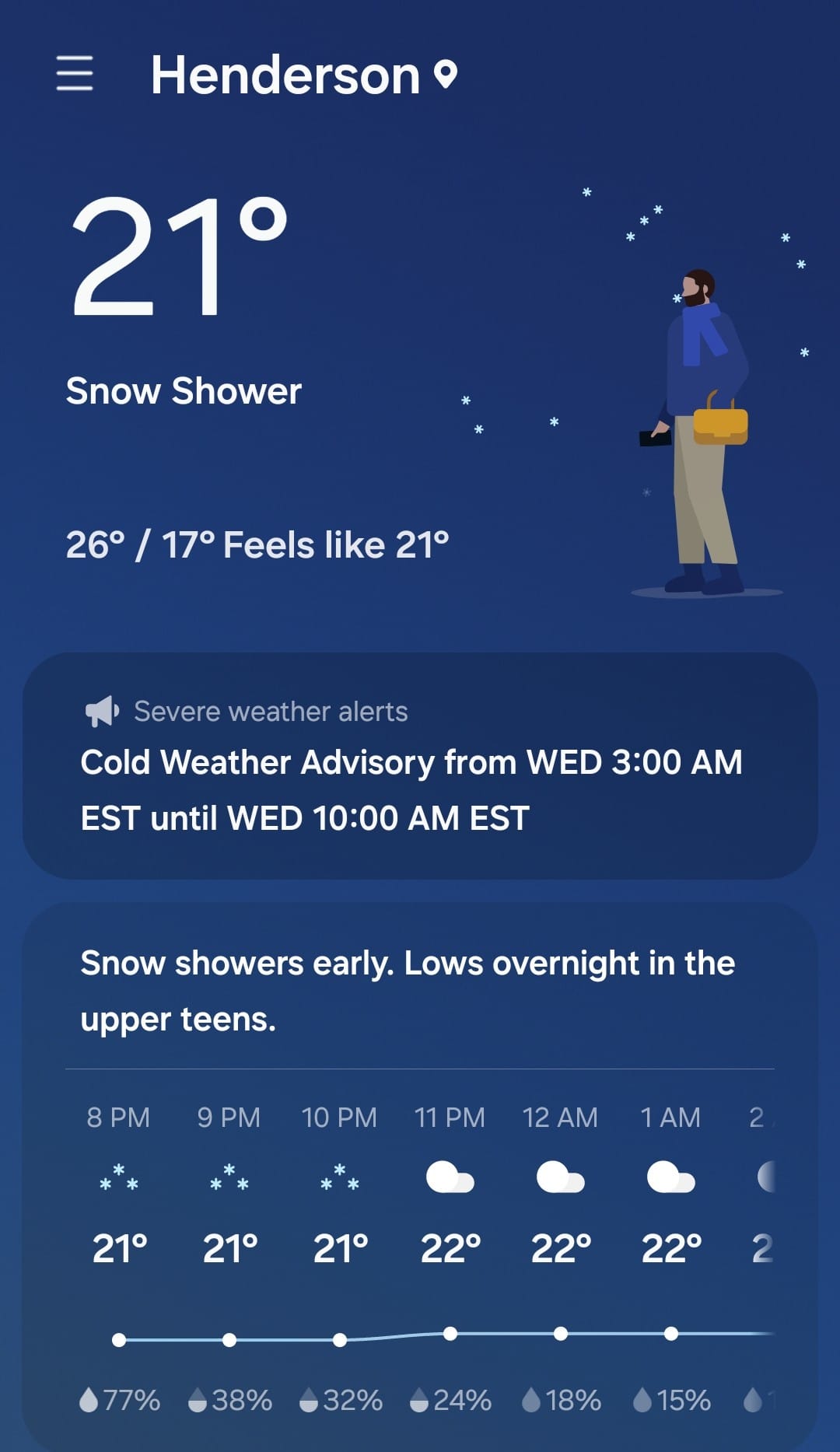
Then the snow came. About an inch of small, icy flakes. The white snow against the blue of the lake was a beautiful sight, but under our rig everything was cold and wet, a brutal combination for our water lines.
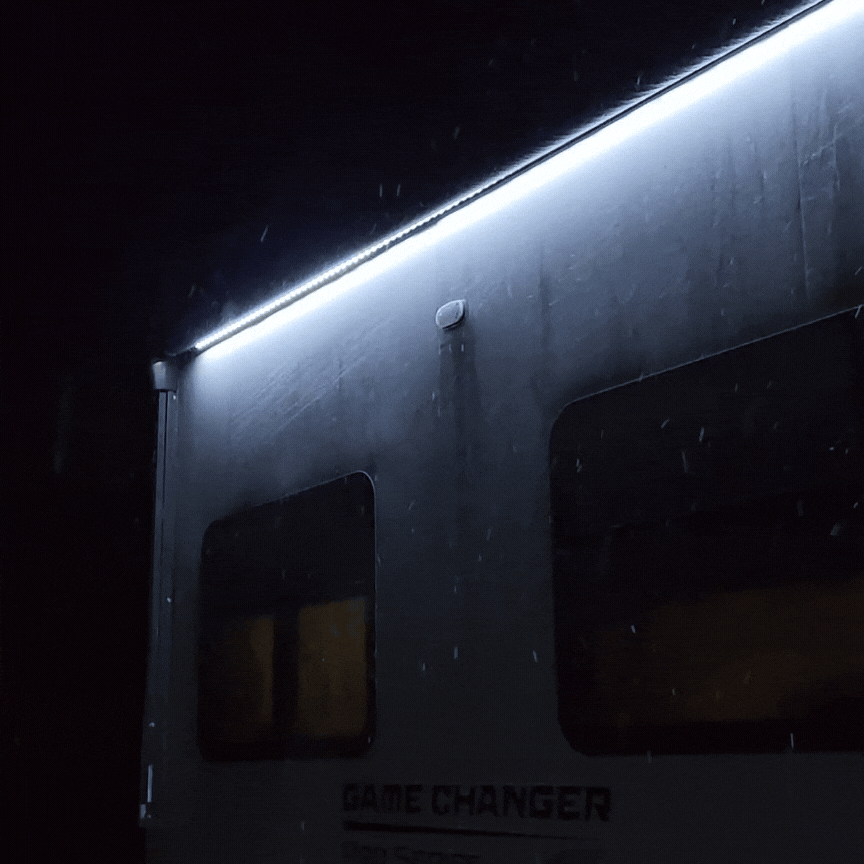
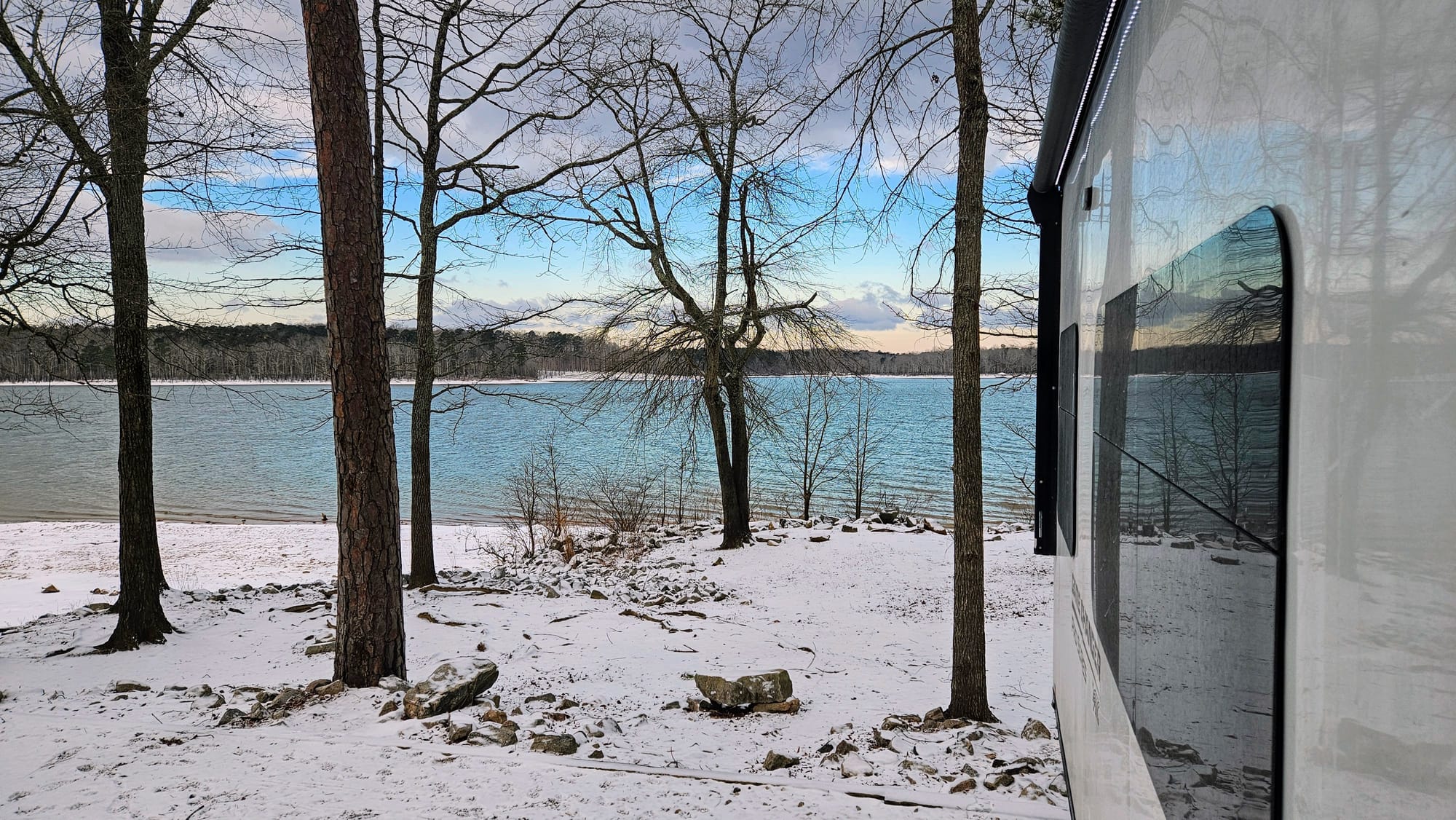
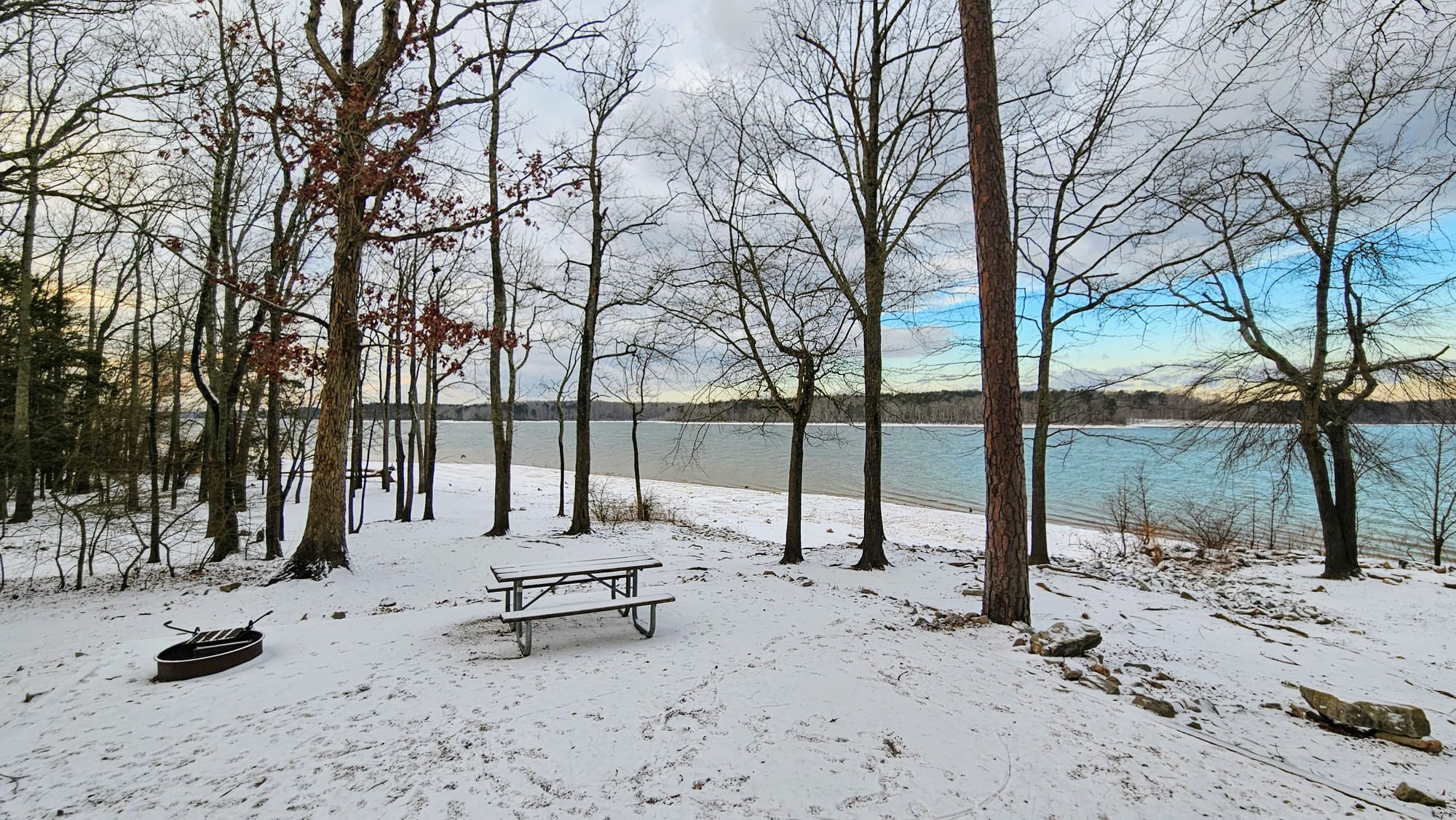
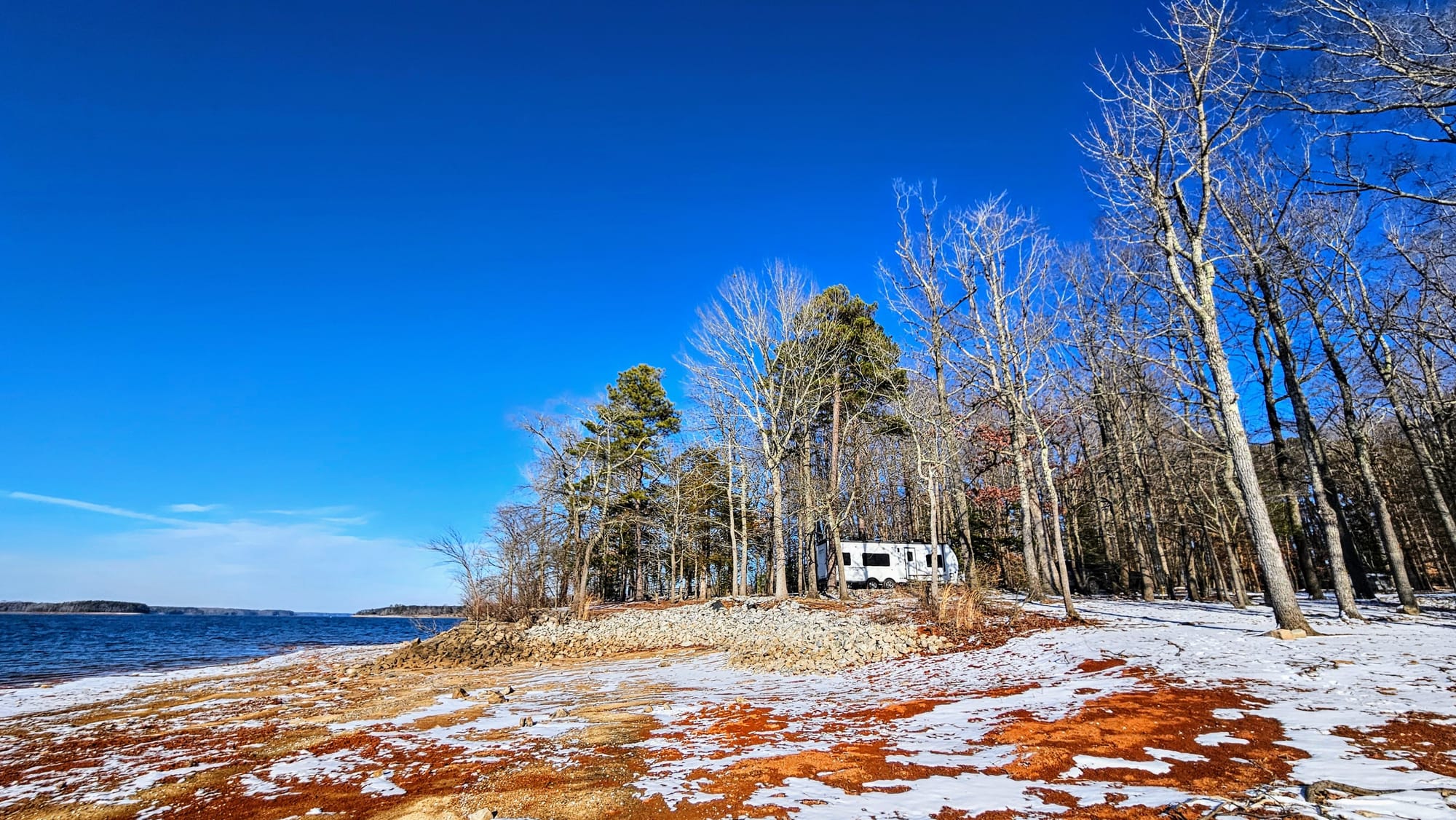
Our lines froze again, and this time, the propane heater wasn't enough to thaw them. We would need to wait for nature to give us a helping hand, and that would mean about 36 hours without running water.
The cold was wreaking as much havoc on our rig as it was on us. Even though we had experienced much colder weather up north, the Carolina cold just hit differently. We are used to crossing the border and breathing a sigh of relief that we've finally hit milder temperatures, but this year we had no such experience. Our bodies were seeking warmth, but all they got was perpetual winter.
As much as we commend our decision to wait out the cold front, I could have done a better job choosing where to park ourselves. Our lakefront site, though beautiful, meant more crosswinds blowing under our rig, causing even less of a chance of our lines thawing. I also ended up wishing that I had chosen an RV park with propane on-site, but thankfully we had options for propane fill not too far away. Hindsight is 20/20, but we also couldn't deny the good that came from our choice to stay at Kerr Lake. We had peace and quiet. Besides one neighbor who parked several sites away, it was just us and the birds – eagles included! We had gorgeous sunsets over the lake on the days it wasn't too cloudy. We also saved a lot of money by choosing a state park, which is especially nice when we know we'll be tucked inside from the cold doing nothing. Why spend the money on extra amenities we won't use? Except propane fill. We would have used that.
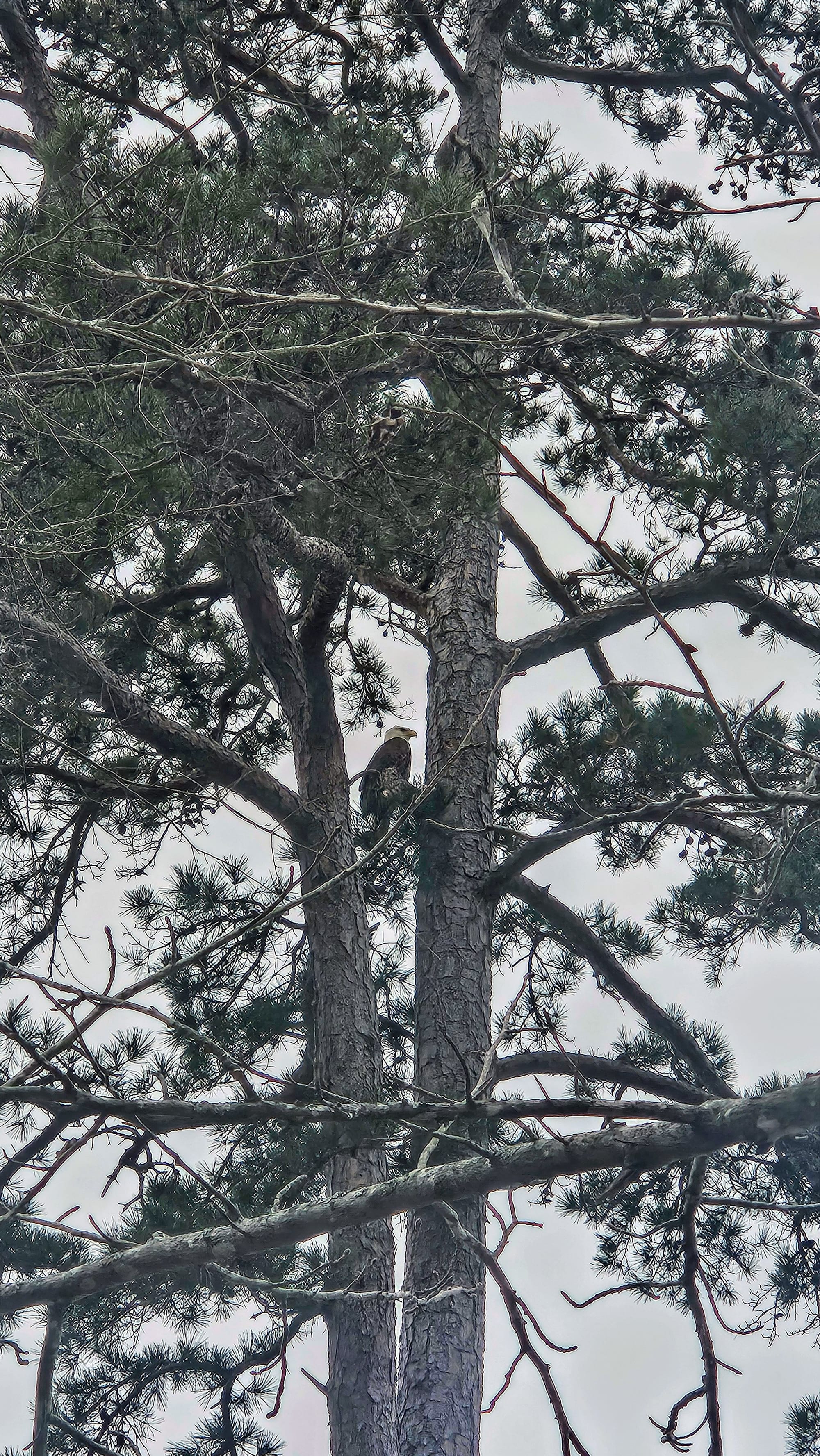
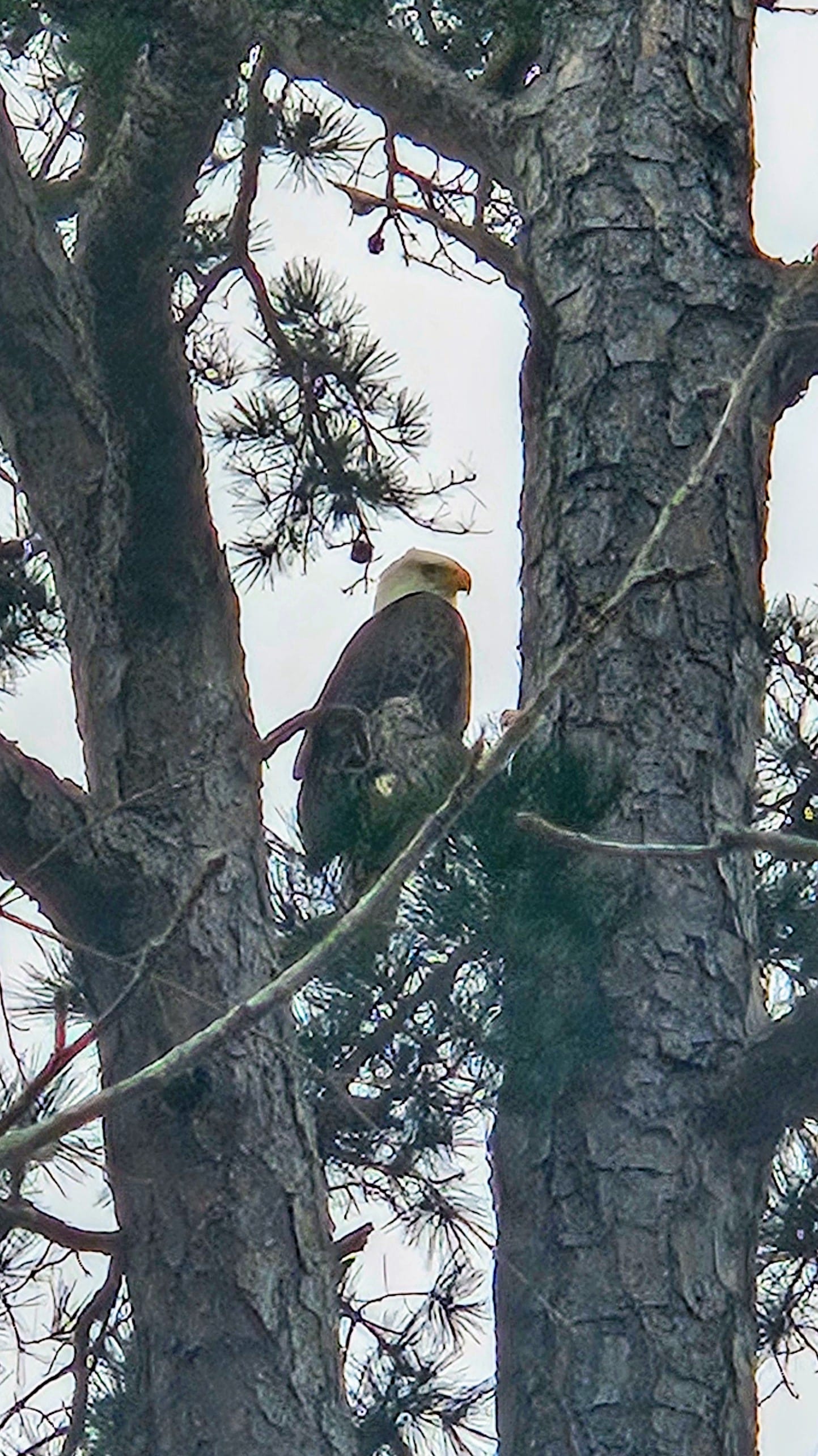
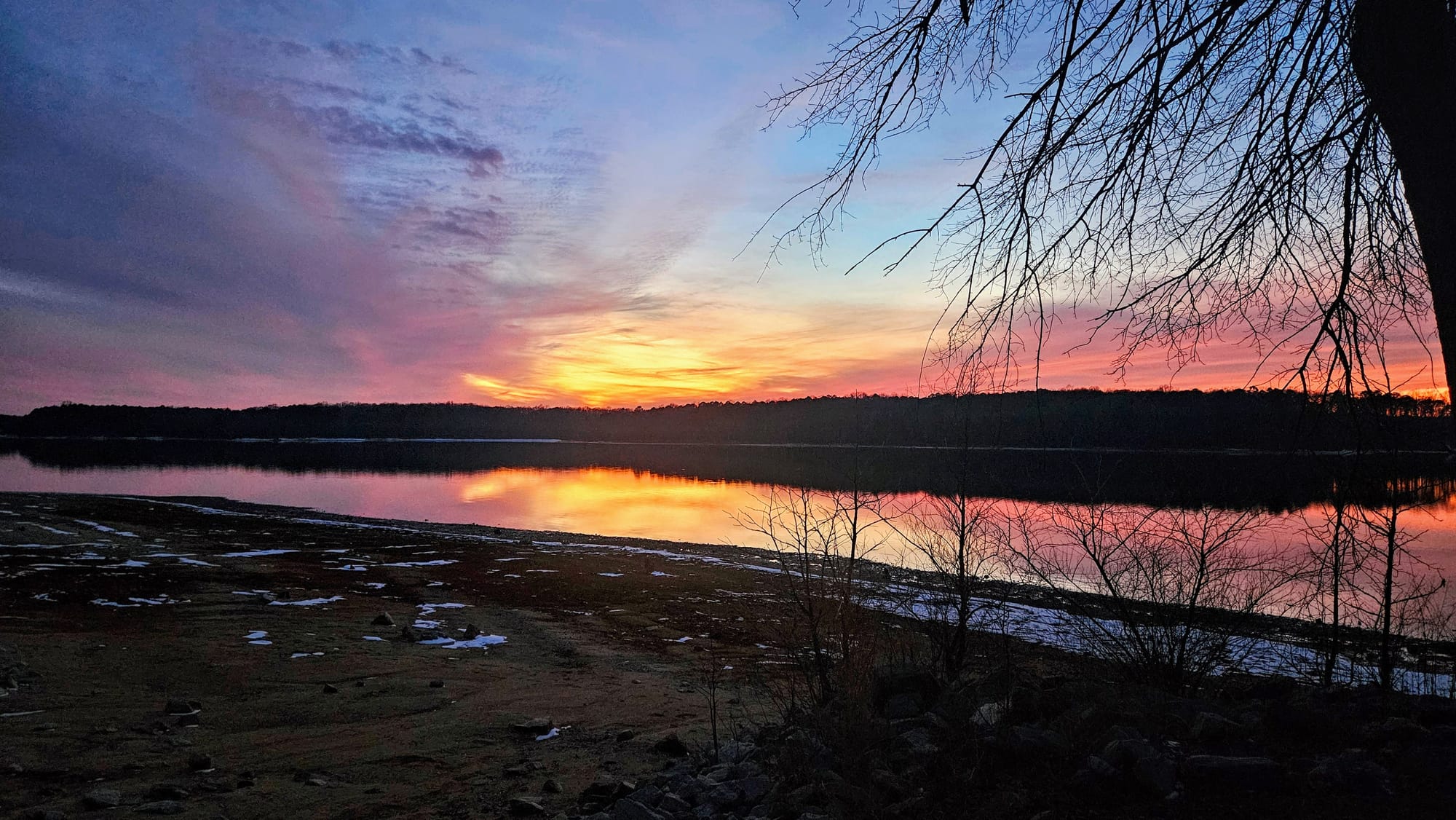
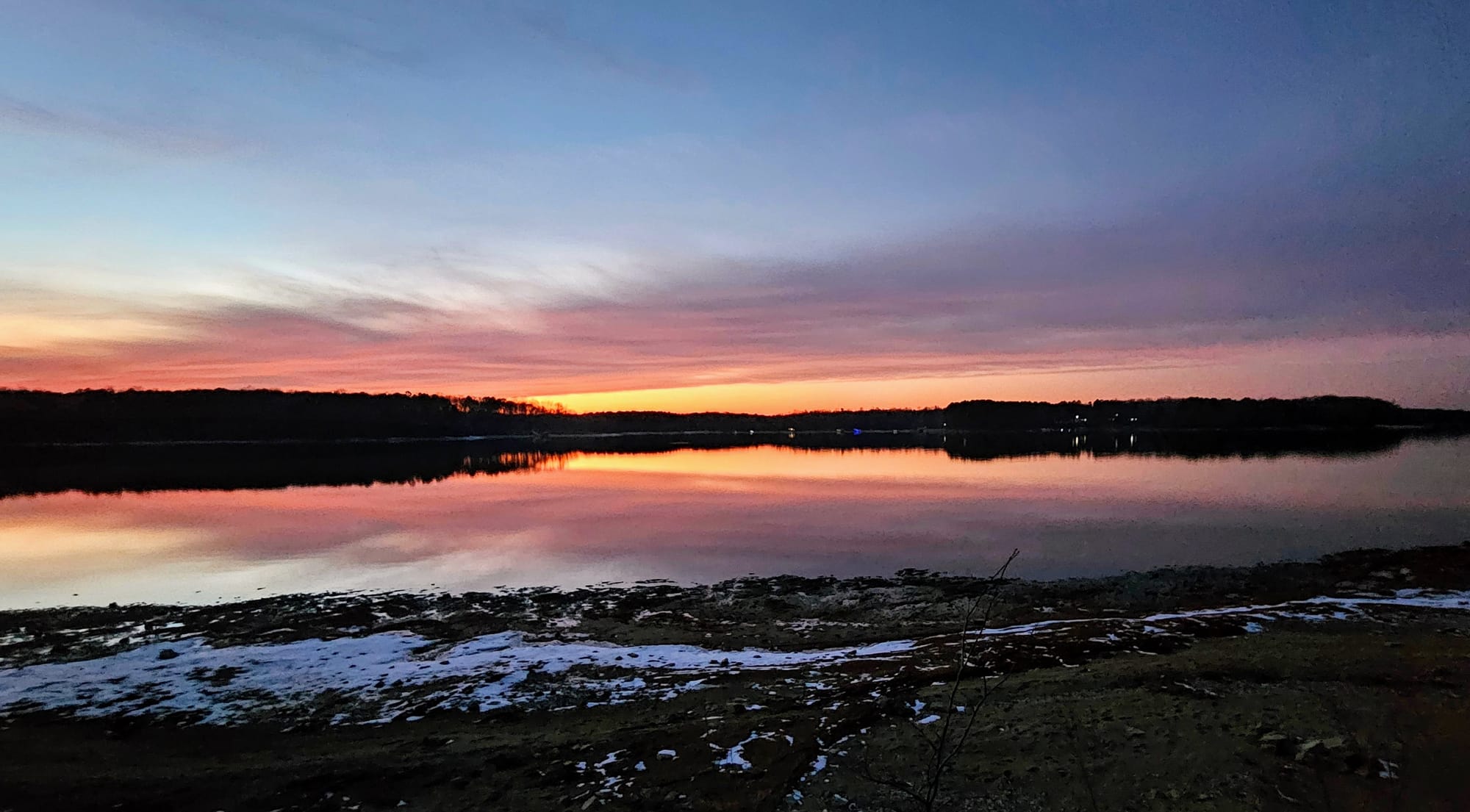
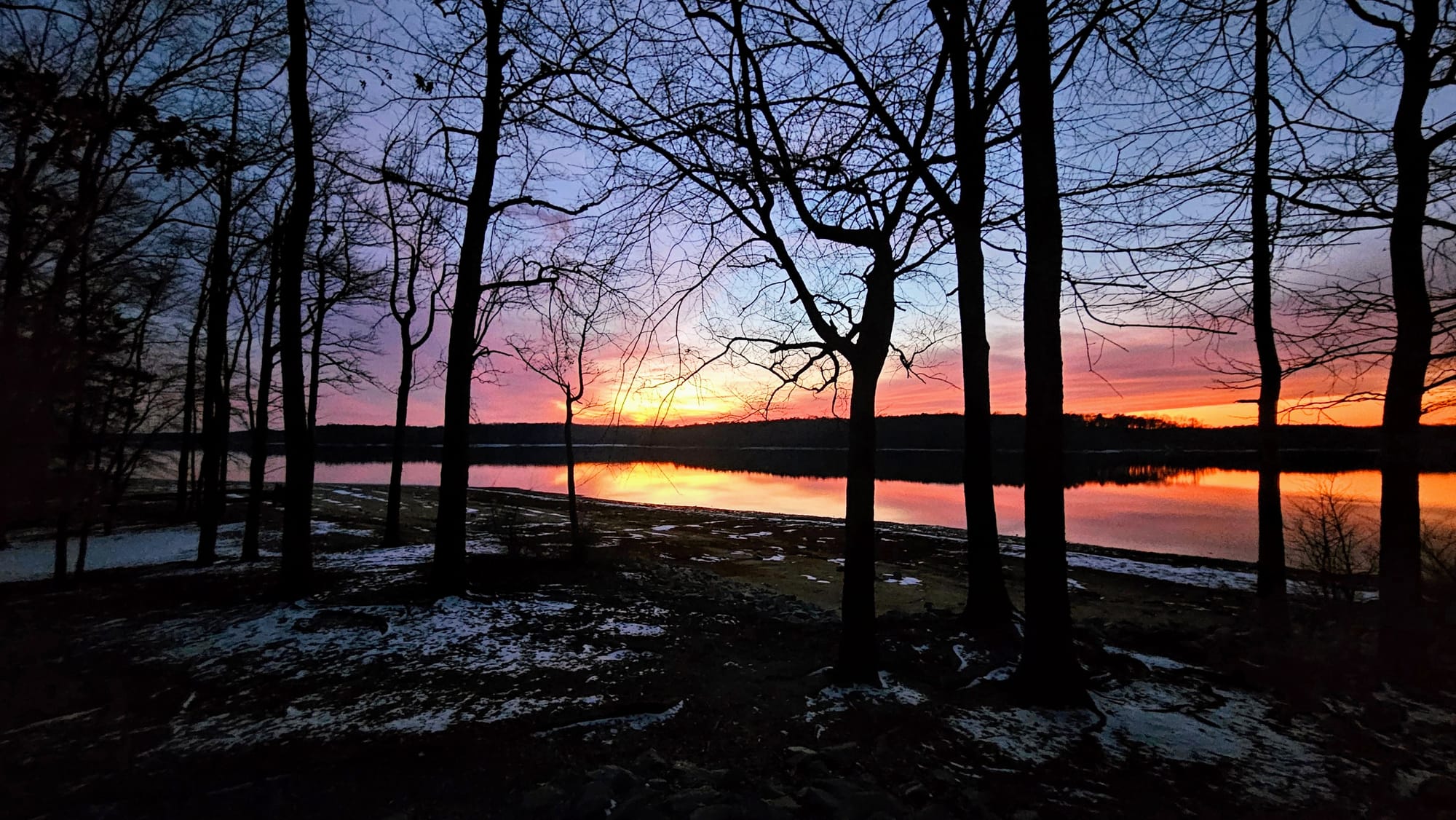
Wednesday was our low point. No running water and the coldest temperatures the whole week. We were looking toward the finish line. The arctic blast would be gone by Thursday afternoon, at which time we would hopefully get our water back. Then, we'd prepare to leave on Friday. Only, where would we go?
Our location put us in a good position to hop on one of many interstates. We weren't far from I-40, which would be an option to start our blitz west early. We could continue down I-85 and eventually hit I-20. Or, we could stick with our original plan and make our way south to I-10 via a couple of different routes.
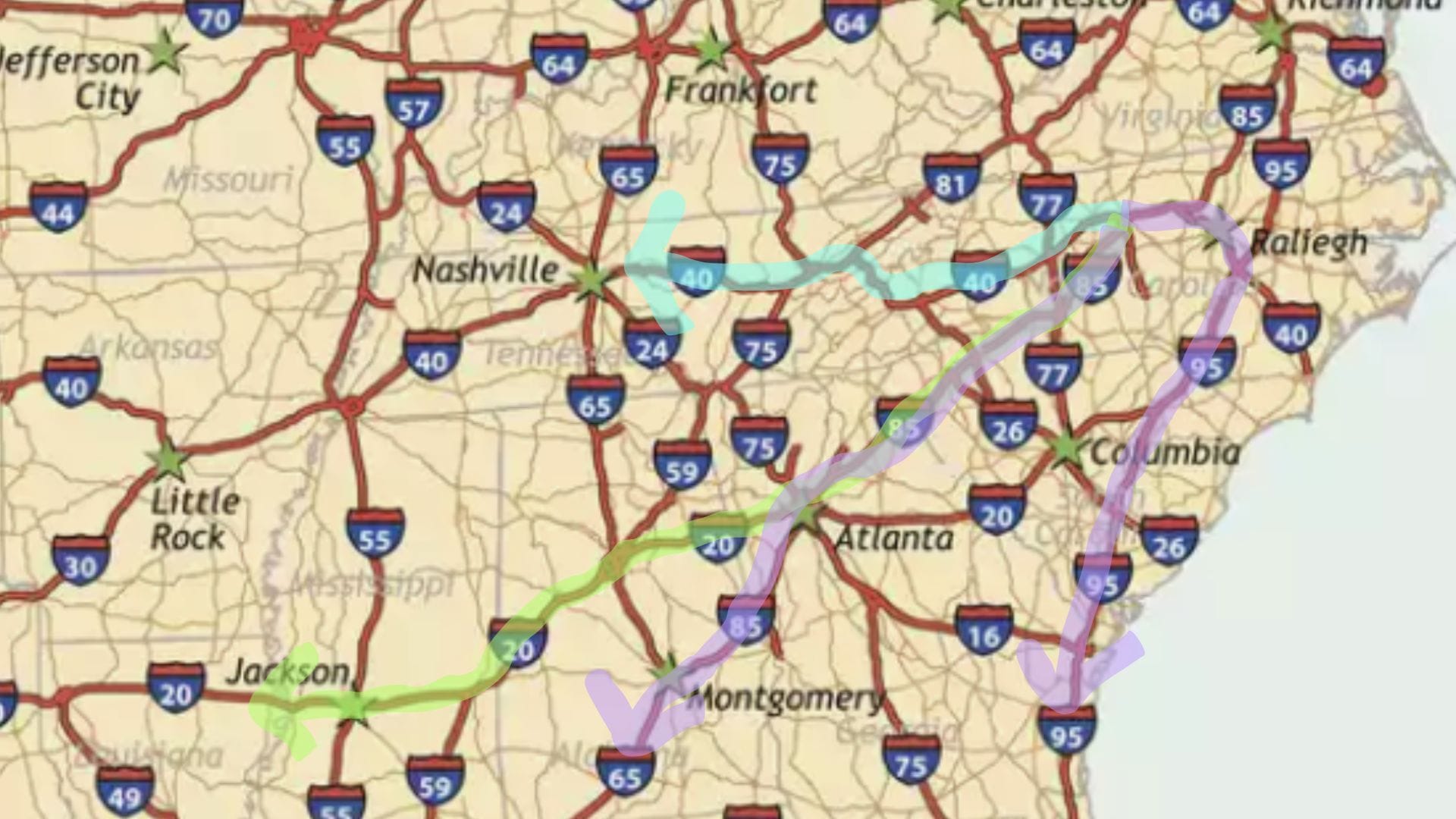
However, upon closer look, travel planning got a lot more complicated. I-40 still had a large portion closed, due to continuous repercussions from Hurricane Helene back in September. Crews hoped the interstate would reopen by the end of the year, but the freezing and thawing of the road has compromised its structural integrity. The part of I-40 from North Carolina to Tennessee will remain closed for the foreseeable future. The most convenient detour would take us back up into Virginia and around from the north, but this felt out-of-the-way considering we want to eventually head south. Plus, I-40 has lots of higher elevation stretches, which means we'd need to be extra diligent about winter weather. The forecast wasn't looking bad, but there is a reason we usually head south before west. Then again, this winter had turned everything upside-down, and now it seemed like everywhere posed a risk.
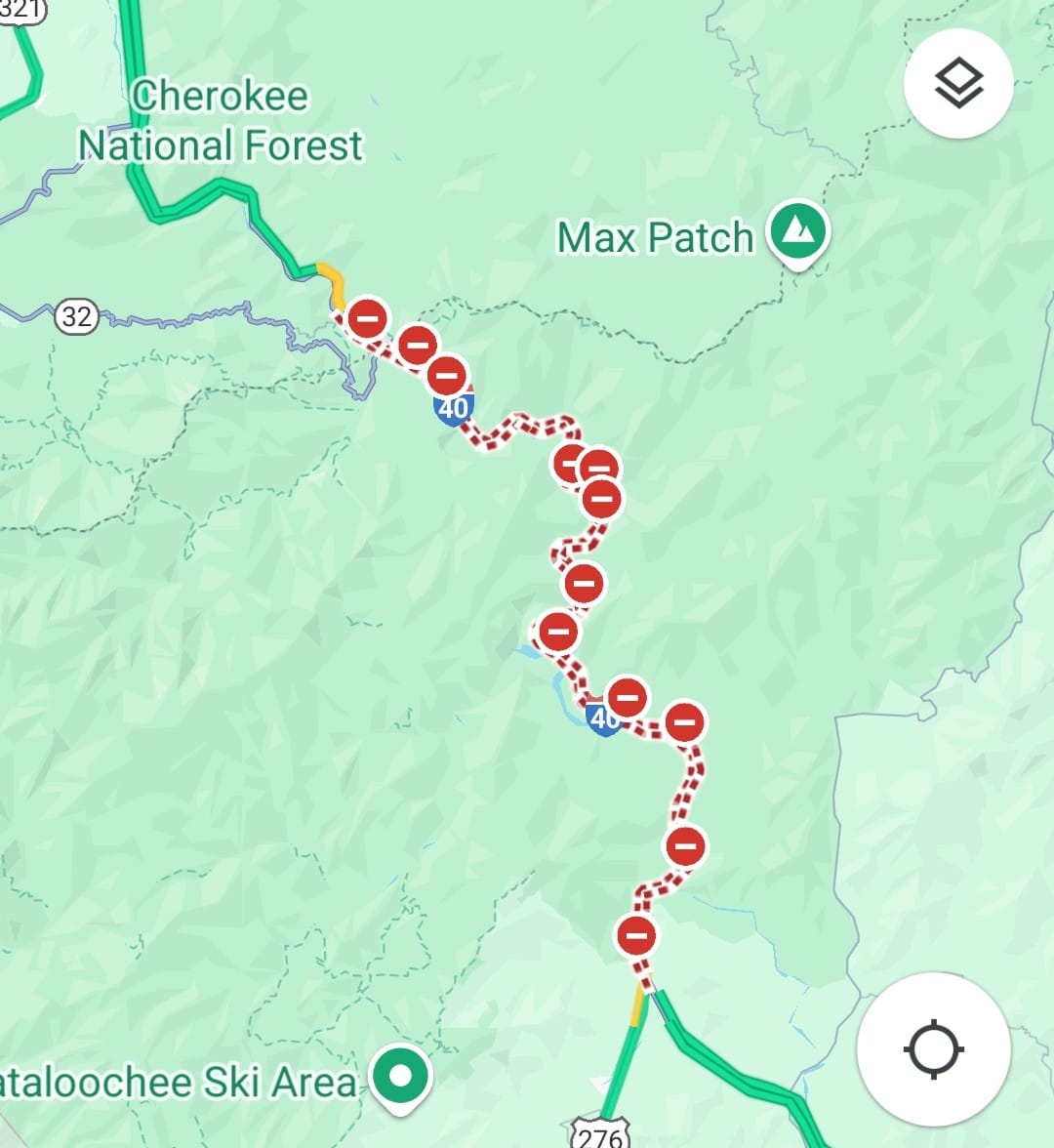
Speaking of which, after the Gulf Coast Storm, I-10 remained closed in several areas in the Florida panhandle and Louisiana. We assumed that the roads would reopen by the time we got down there, but nothing was guaranteed. It's hard to make a route decision when the route isn't even open yet!

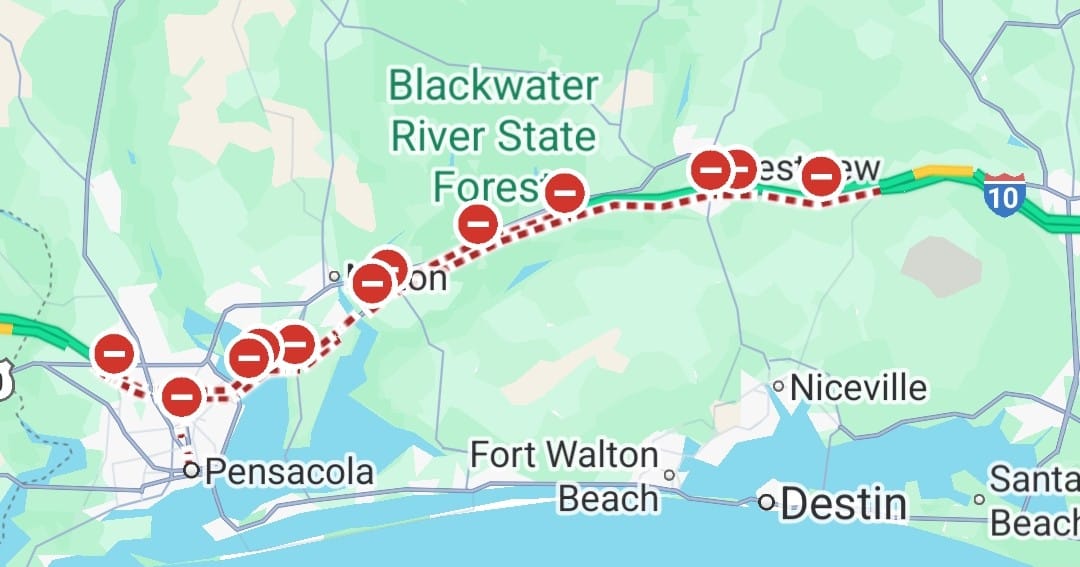
That left us with I-20, which seemed to not have any closures, but would also guarantee us going through Atlanta and Dallas, two cities we ideally like to avoid while towing. We also are least familiar with that interstate compared to the other two.
The road closures needed to be our biggest factor in planning, followed closely by the weather forecast. After that, we just had to ask ourselves, where did we want to go? Was there anything along any of those routes that we wanted to see? Did we want to return to any place we had been in previous years? What was visitable in the dead of winter? We still weren't out of our ambivalence that had been hovering over us since before we left. What in the US could possibly give us a boost?
I thought back to one of my musings about RV travel – one I wrote about in a previous blog post. It's this idea of carving a life where you're meeting your basic needs and can therefore satisfy needs that are more passion-driven. We've worked hard to build little habits that mesh perfectly with our travels, and therefore, ignite our spark for travel even more. After over 2 months stationary and dealing with a lot of recent changes in our lives, it was time to remind ourselves what the RV life gifts us. First, we needed to make sure our basic needs were being met, in the unique ways this lifestyle allows.
We took advantage of our only not-freezing day at Kerr Lake and hopped on one of the park trails near our campsite. We trekked through the leaves and snow in the winter woods. We needed to reconnect with nature, and our favorite way to do that is hiking. Just planting our feet on the earth helped us root ourselves back into our rootless way of living.
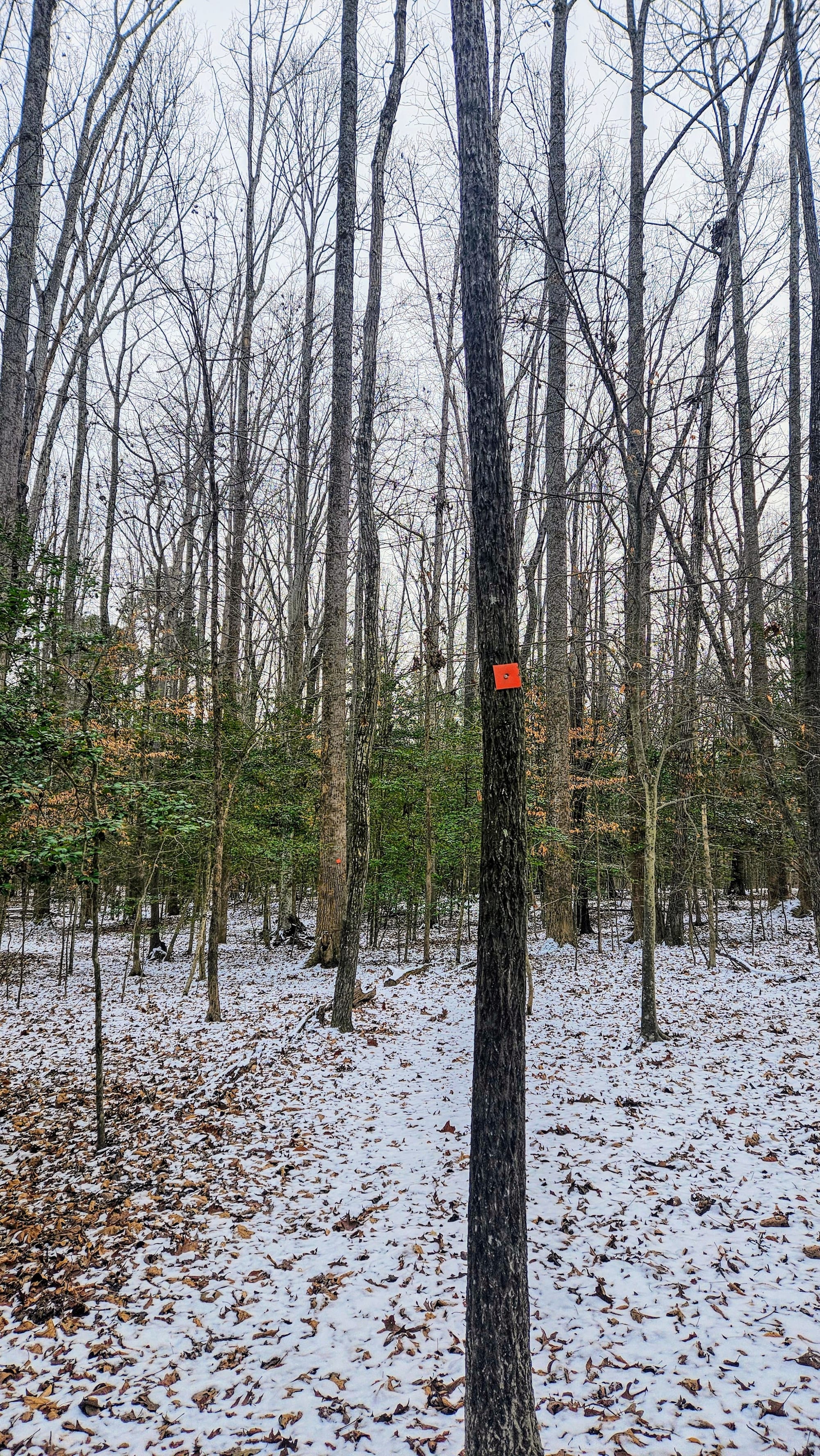
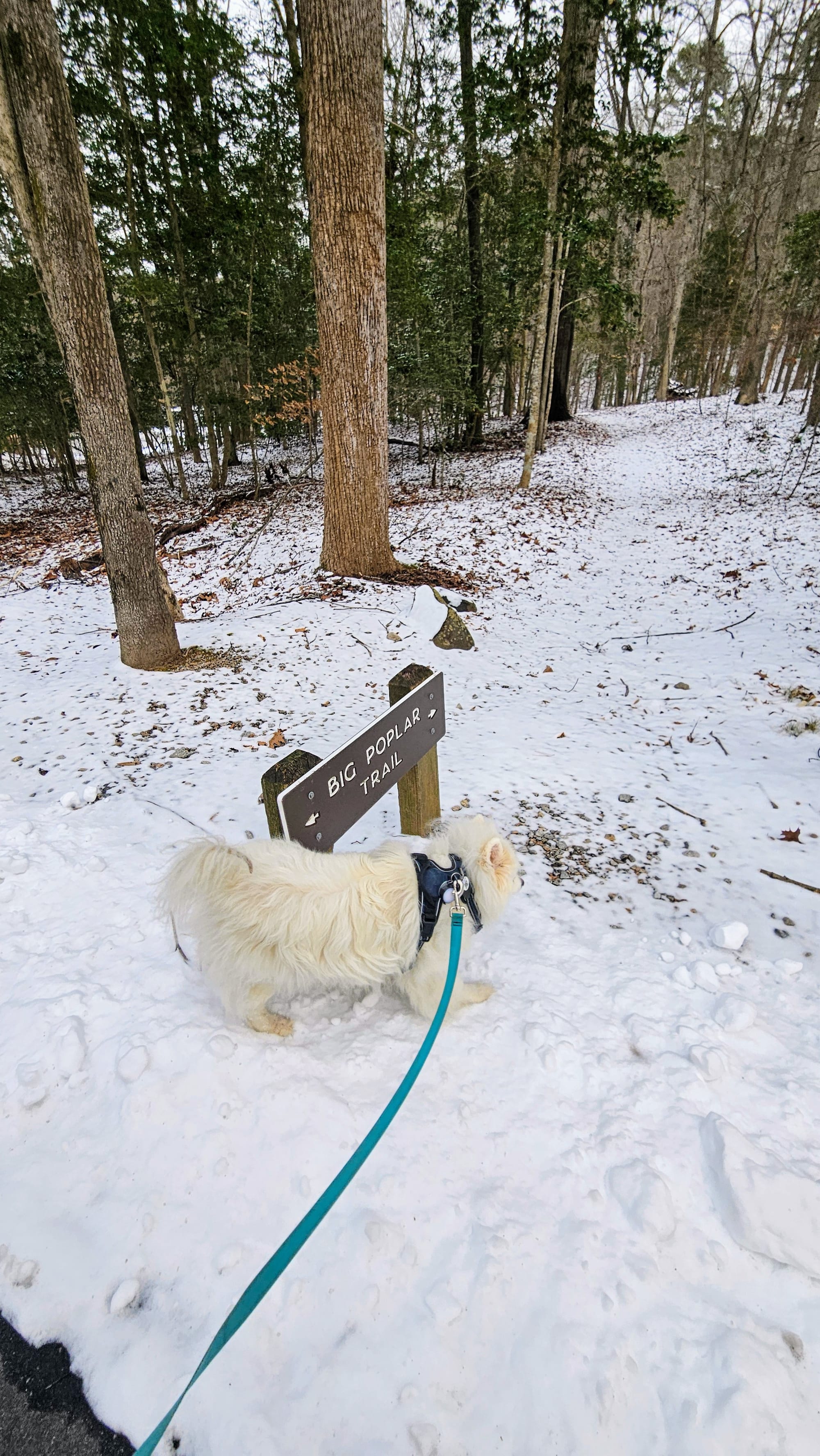
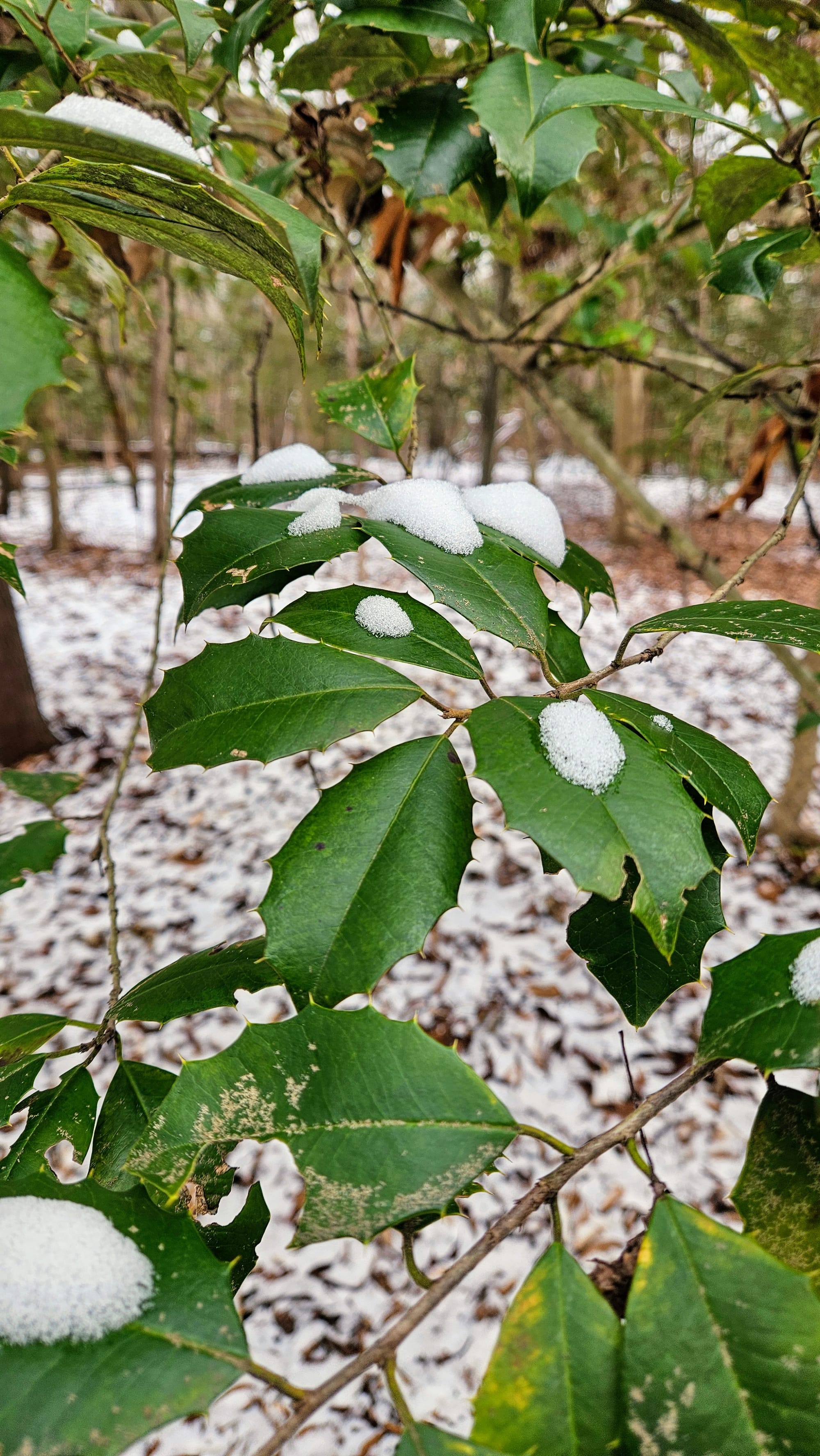
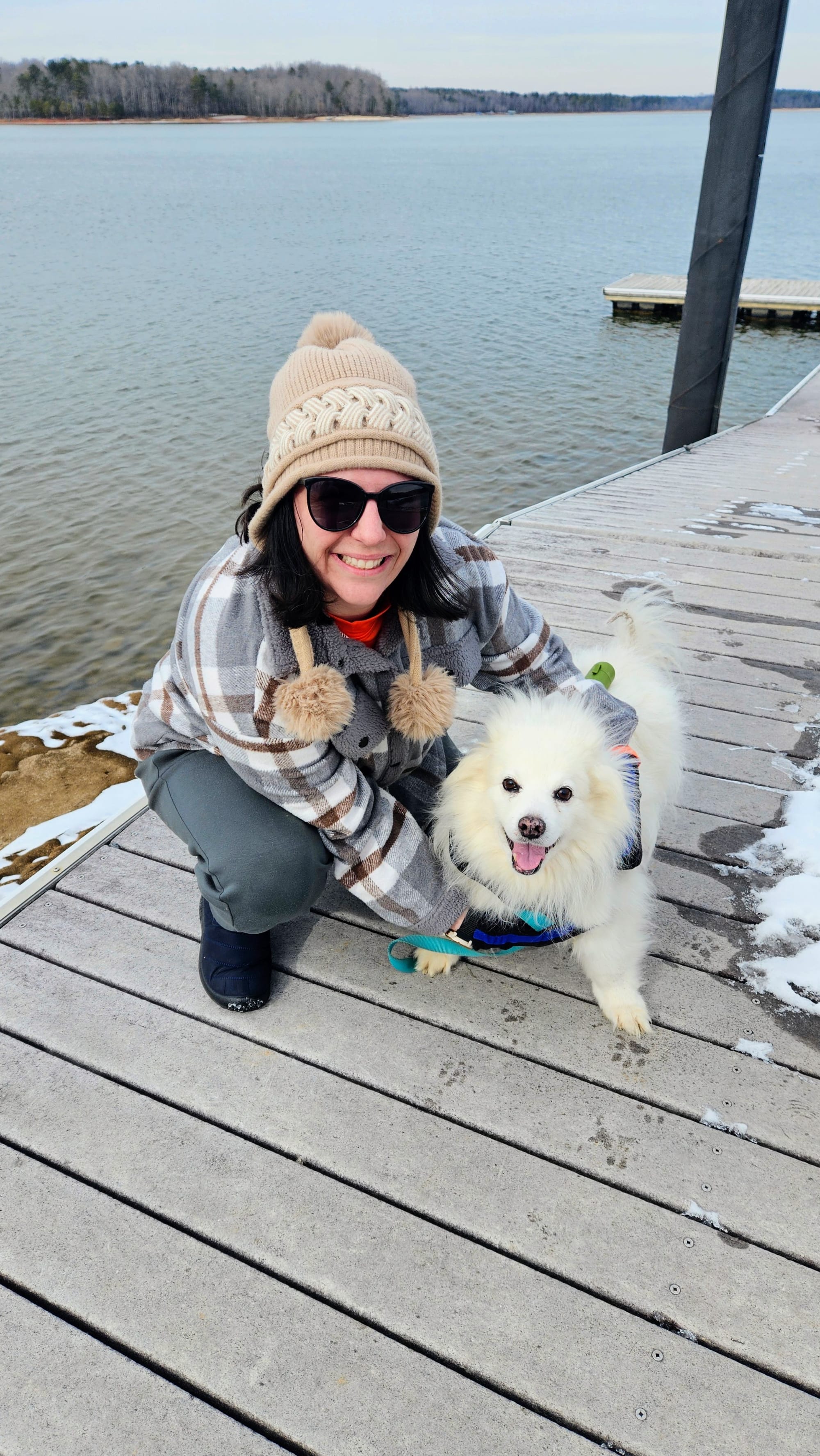
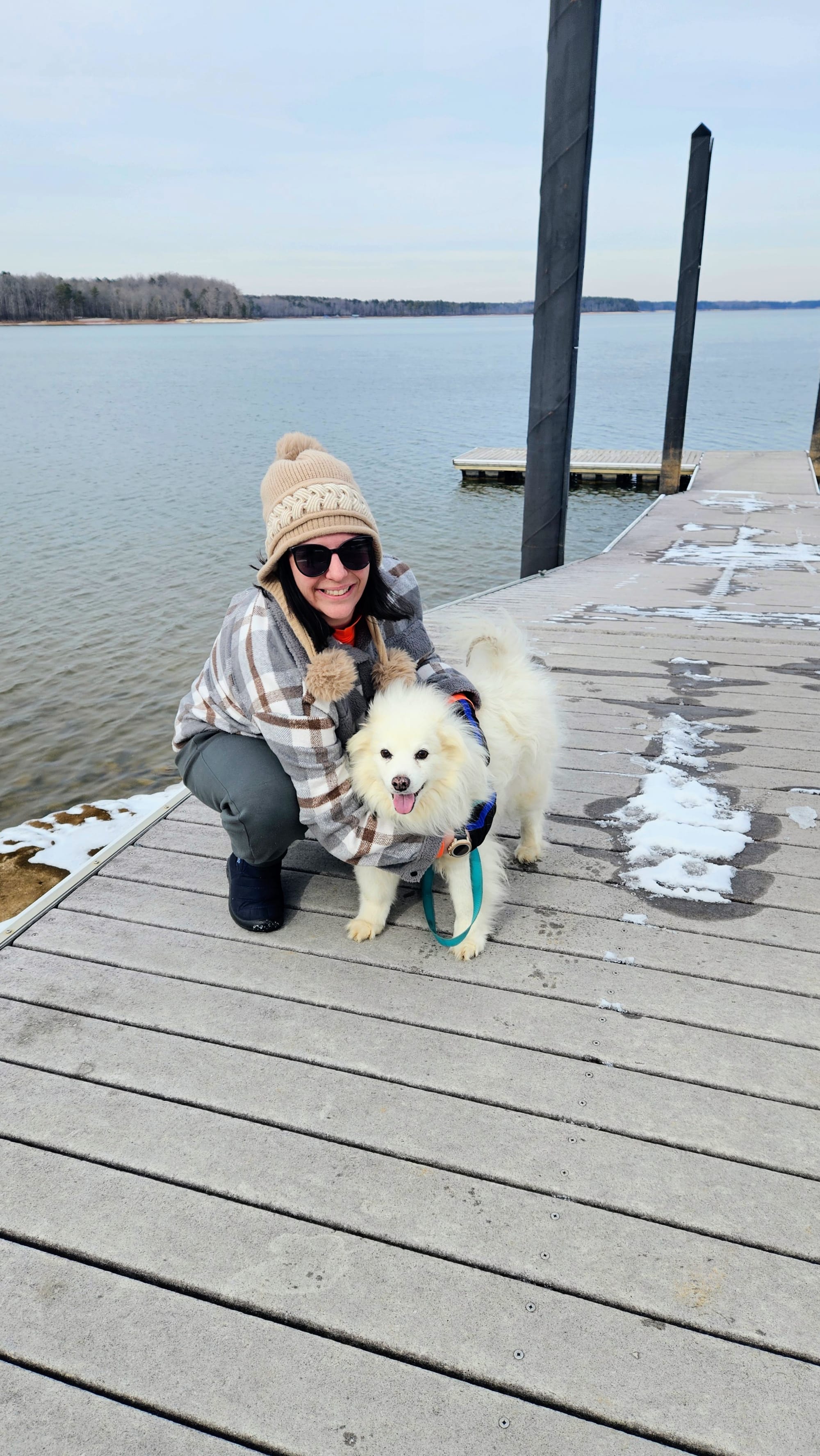
Still not having a final decision on which route we wanted to take west, we left Kerr Lake and set off on a 3.5-hour drive to Charlotte. We made plans to grab lunch with my cousin, whom we hadn't seen in a few years. Launching back on the road can feel extra lonely because we're leaving a world where we have lots of family and friends nearby. But in reality, RV life gives us lots of opportunities to connect with our loved ones. We're able to visit people that we wouldn't get to see often otherwise. Usually when we head south after our stationary time, we already have get-togethers planned along the way. This time, plans were so up in the air that we hadn't bothered reaching out to anyone. We didn't know how much we'd miss the social connection, but it created a heaviness that added to our RV life ambivalence. Our cousins time lifted it and set us in better spirits to continue our journey.
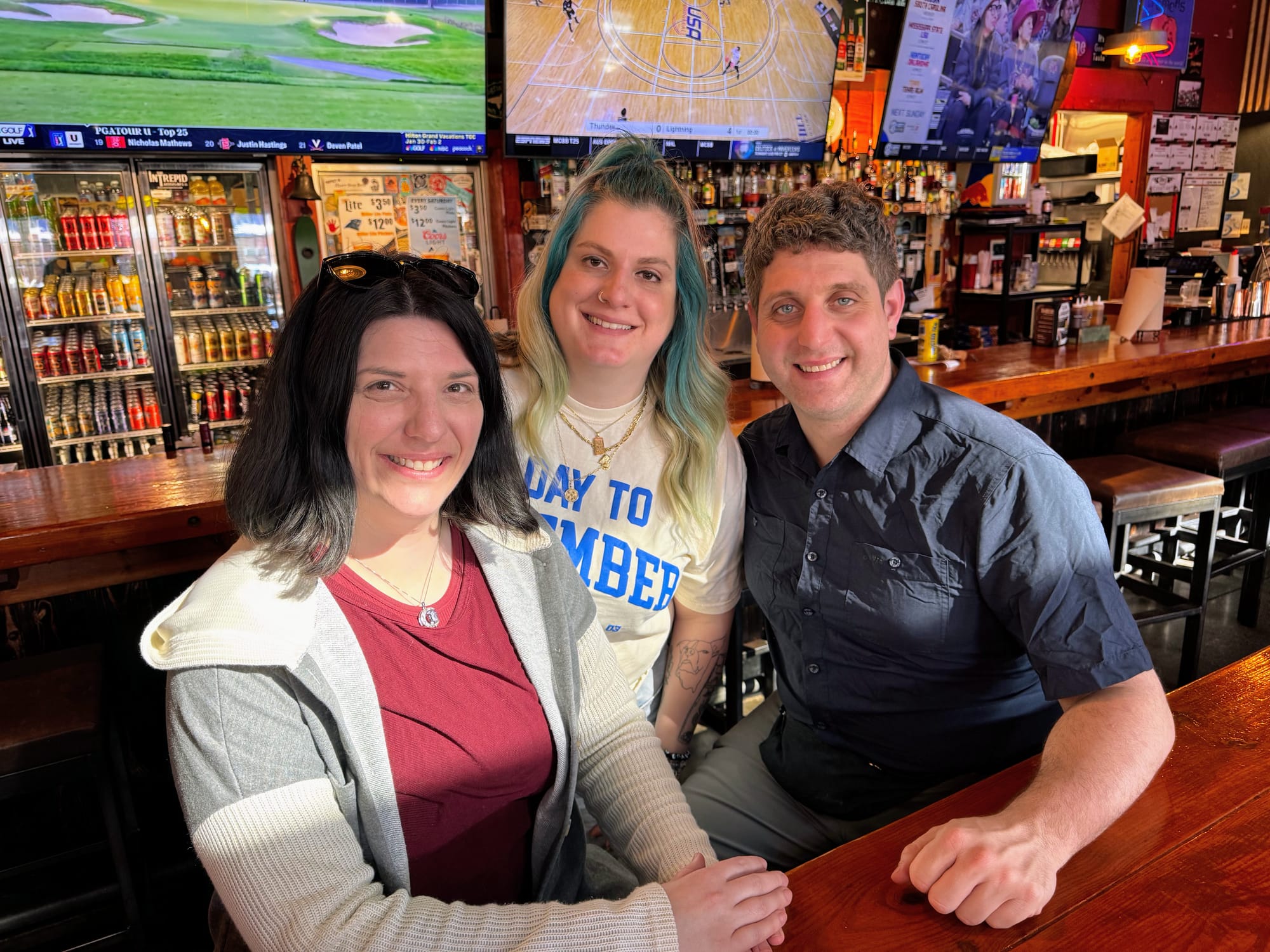
We camped at McDowell Nature Preserve, a county park in Charlotte on Lake Wylie, a lake on the border of the Carolinas. We love finding campgrounds that feel like a retreat in nature but are only steps from civilization. We got our nature fix by exploring some of the Preserve's trails and overlooks. We also satisfied a very important basic need in our favorite way. We were finally back in Sprouts territory! For us, this means a giant grocery haul of some of our favorite brands of food that are difficult to get up in New England, or a much better price than organic shopping in New England! We know it sounds funny, but one of our all-time favorite parts of RV life is going to natural grocery stores in each region of the country. It's become a hobby of ours to see what has changed since the last time we went, which new brands have arrived, and what items we find that we haven't seen anywhere else yet. Then, we get to cook delicious, healthy meals. Combine that with our prioritization of nature time, and we start to feel like better versions of ourselves.
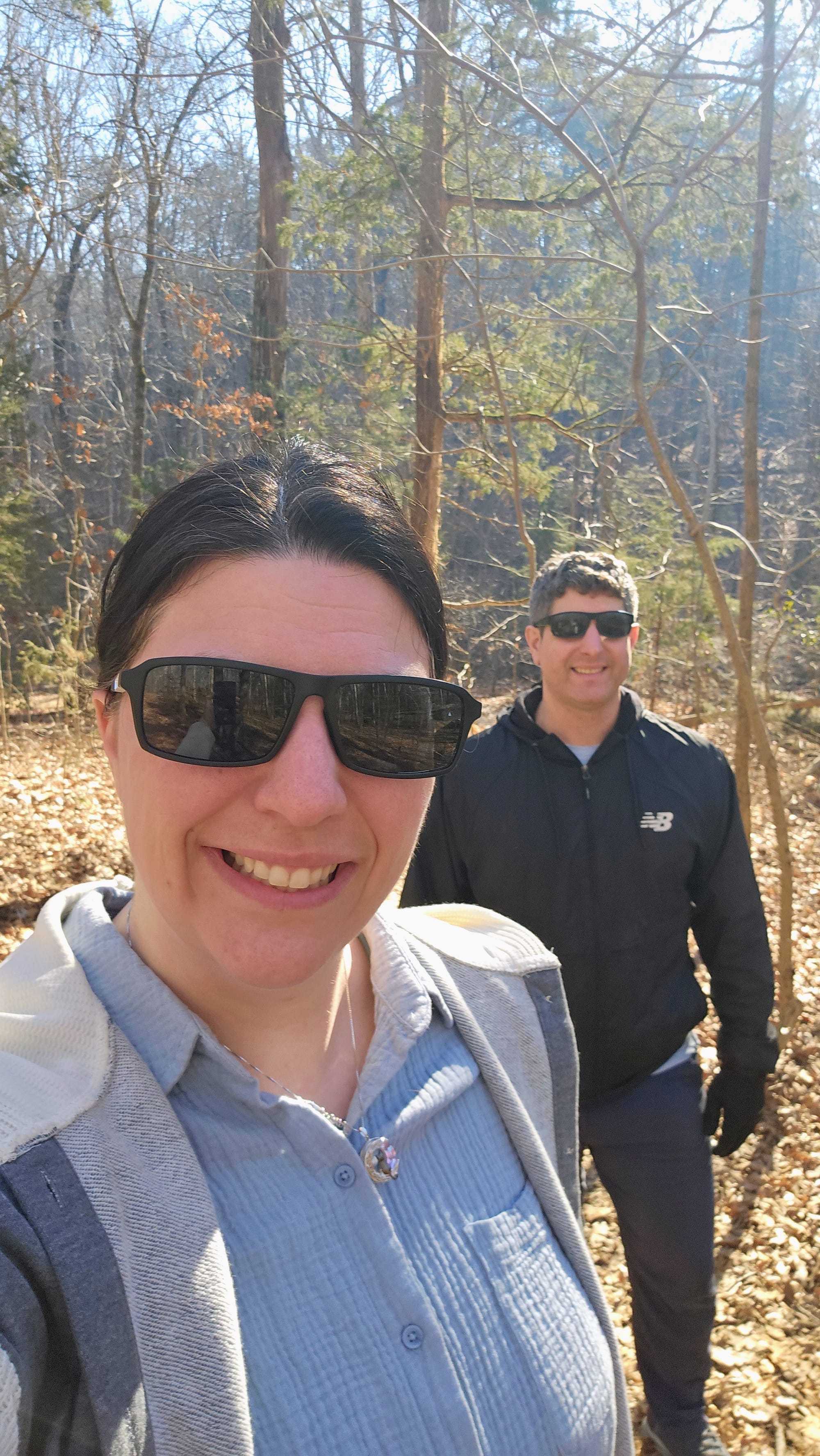
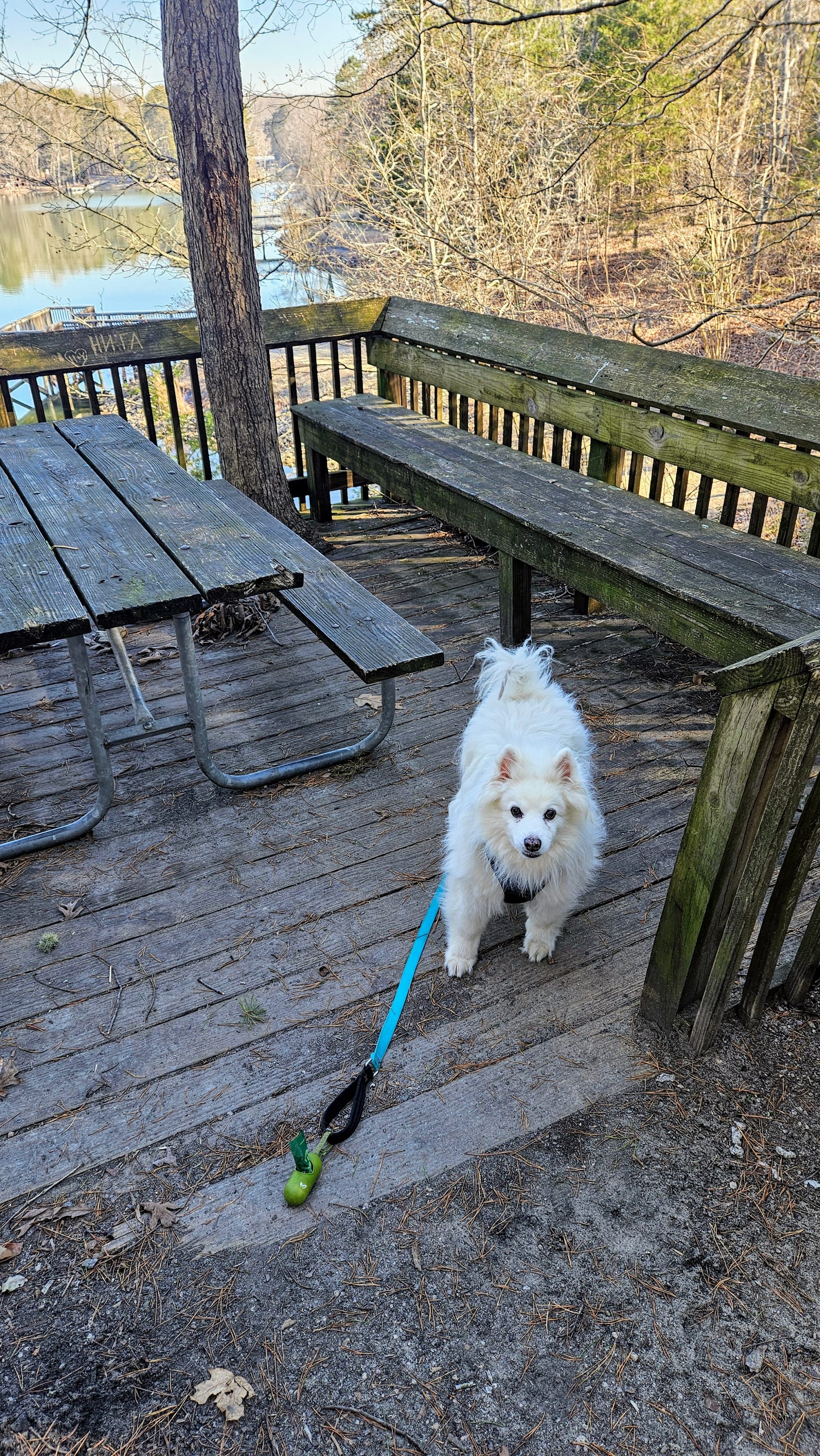
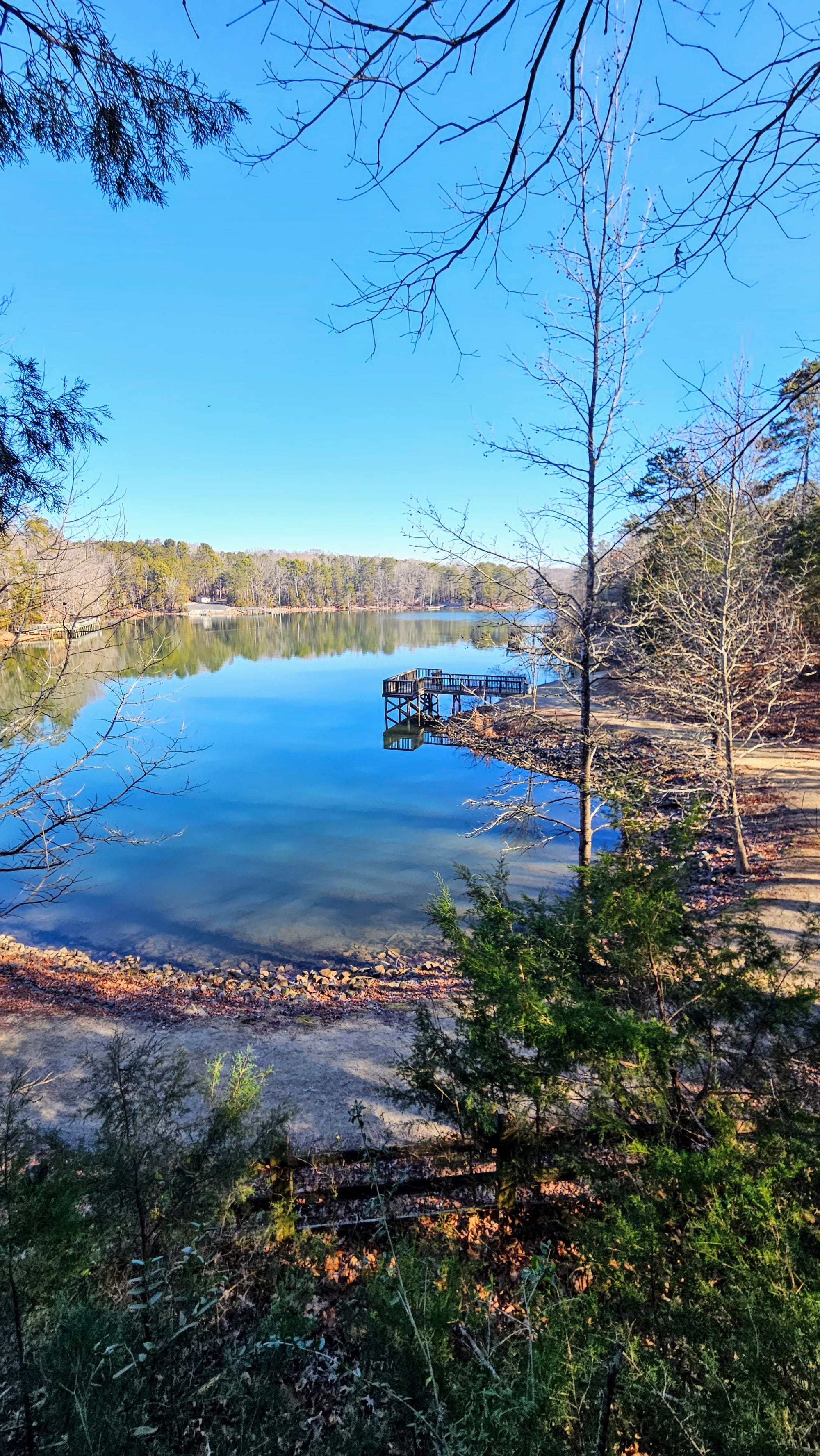
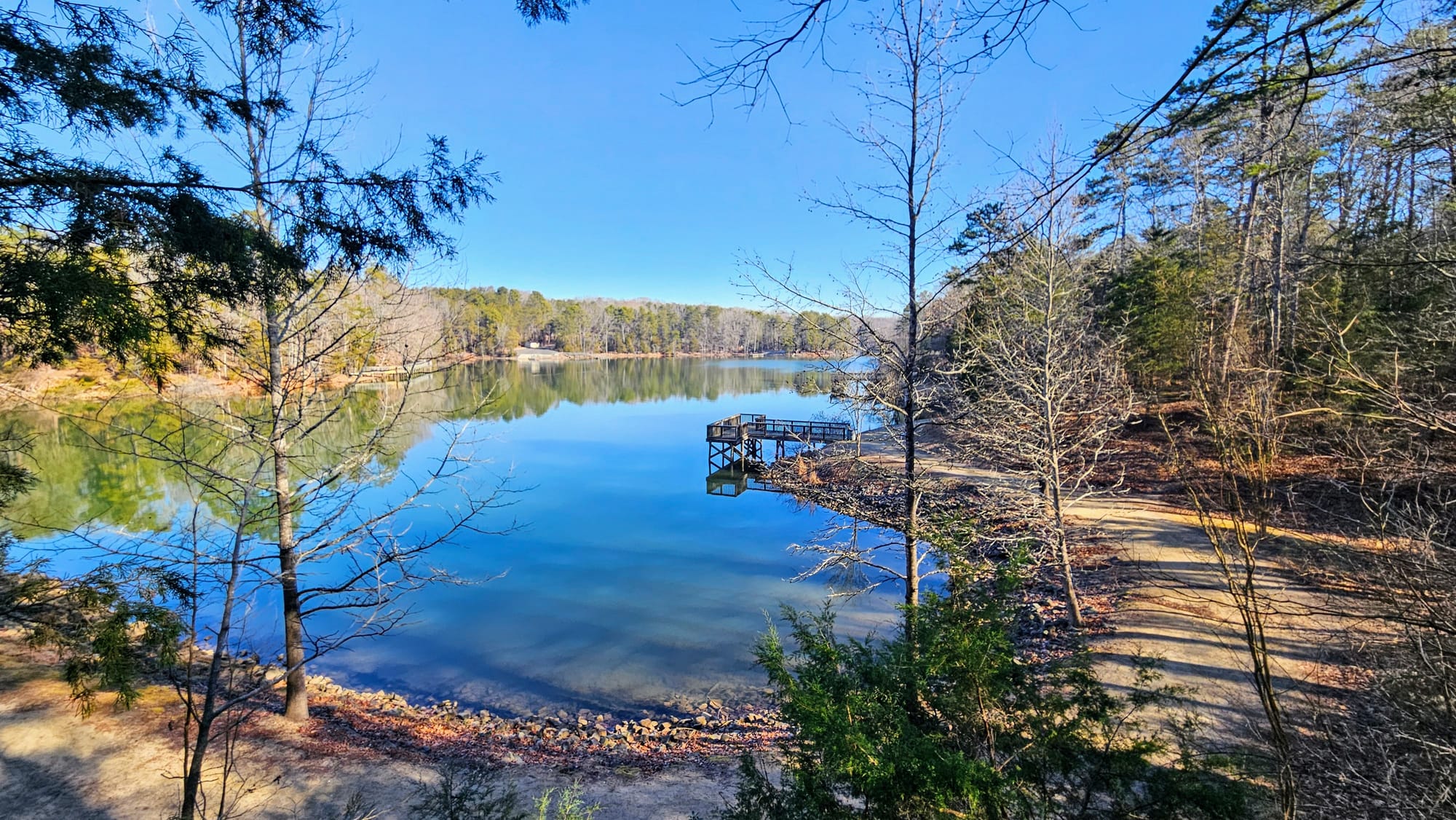
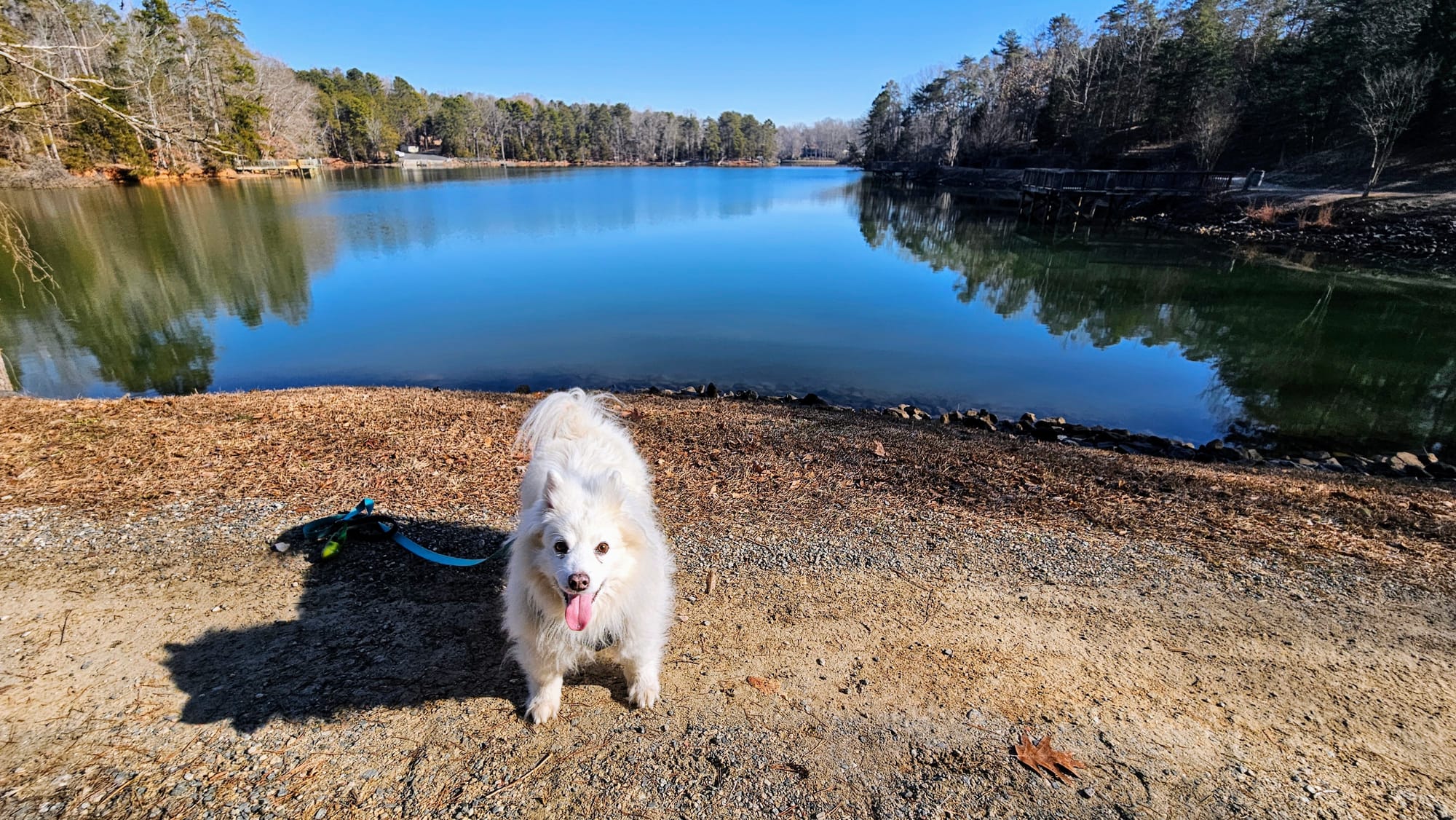
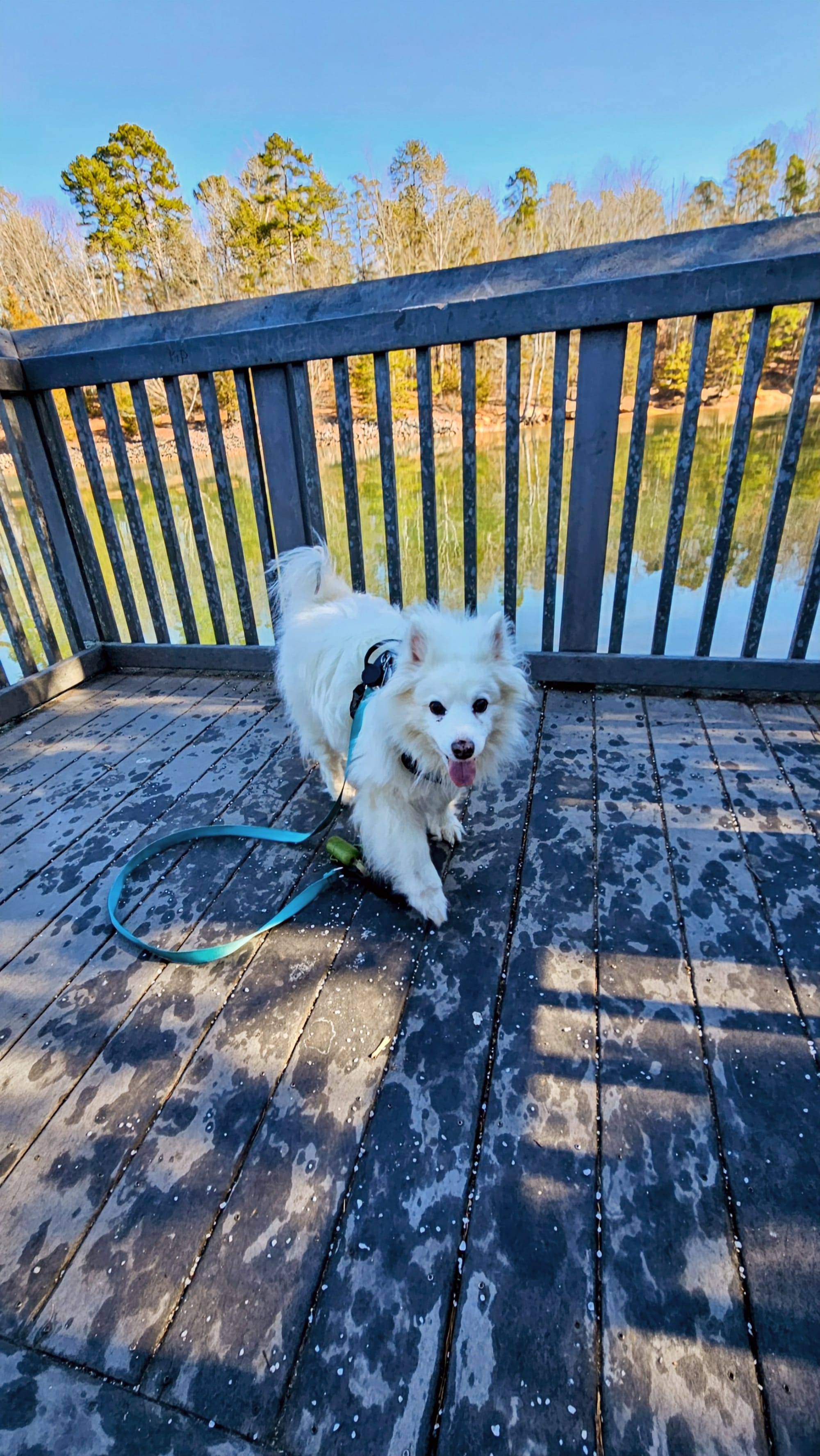
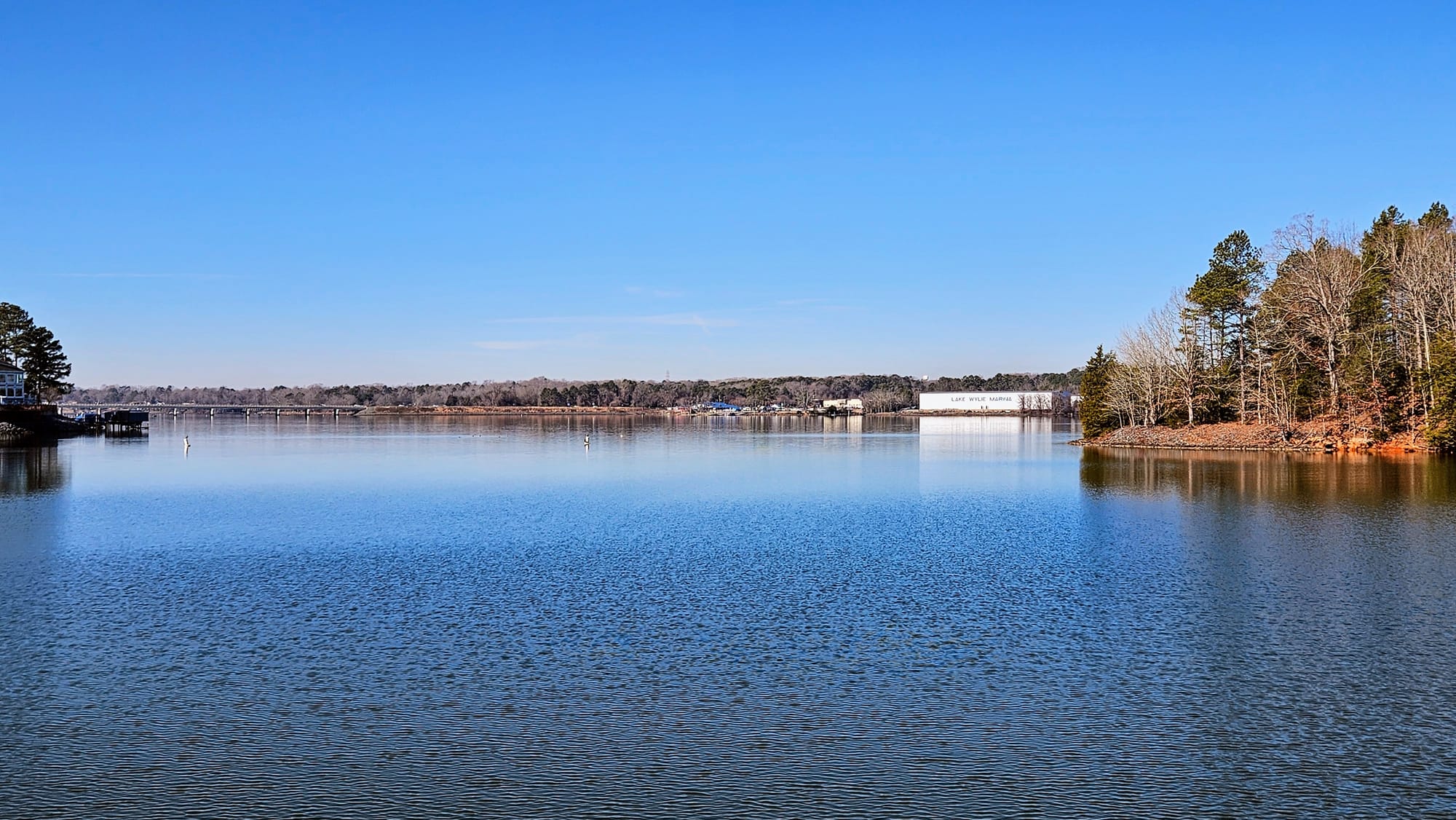
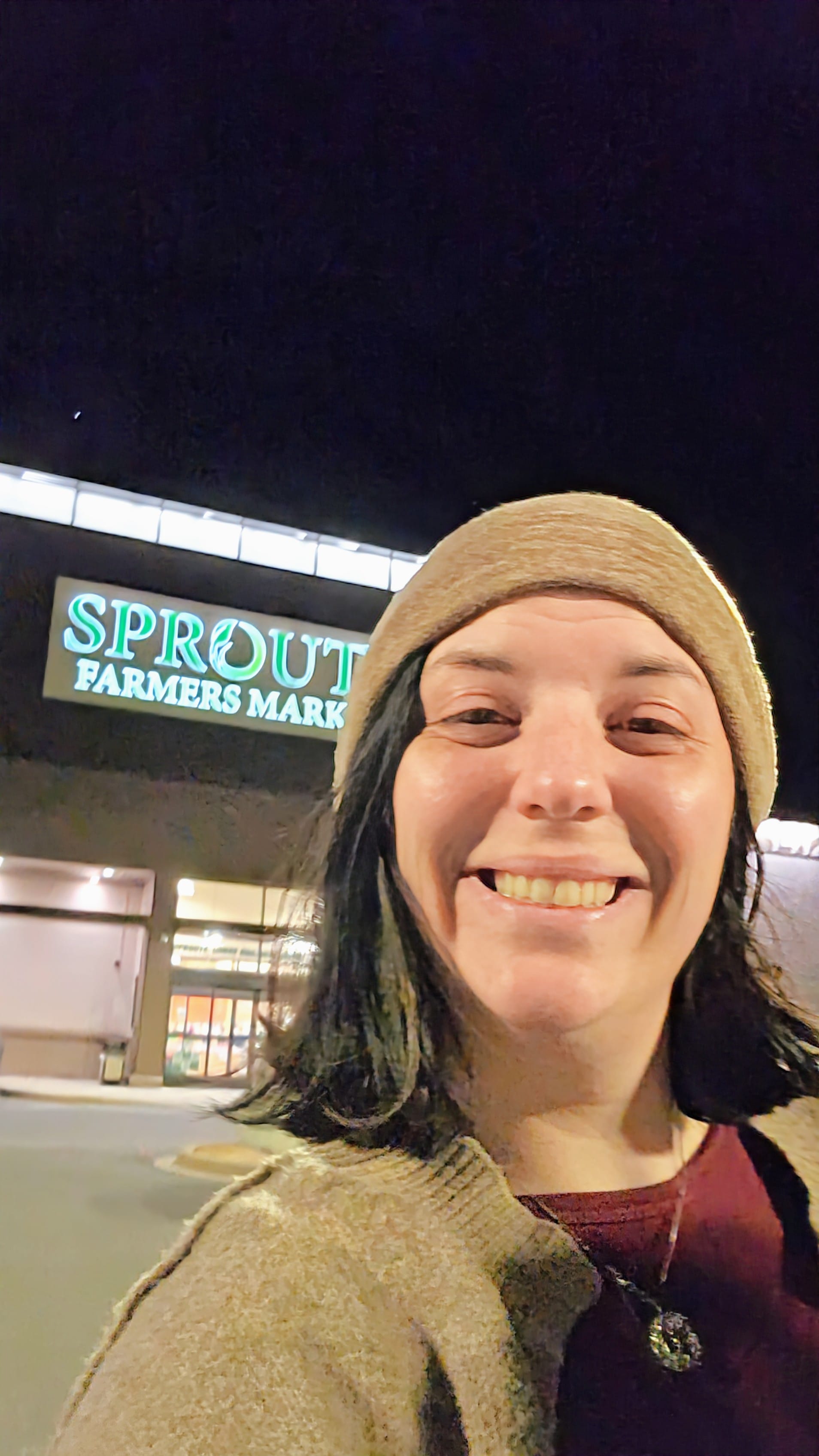
We left Charlotte feeling like we had finally filled our cups enough to wash out our RV life ambivalence. We got the boost we needed to turn our attention to the next leg of our journey, and hopefully find more moments of happy along the way.

